The Messenger
could the good news still unite the church today?


could the good news still unite the church today?

One of the early challenges of the Protestant Reformation came about after the Bible was translated into the common language. Luther believed that interpreting Scripture would be straightforward for readers. This was soon proven wrong, and both Lutherans and Calvinists quickly returned to more formal systems and restricted biblical interpretation to men who’d been theologically educated and approved (Beliefs: Mennonite Faith and Practice, John D. Roth, pp. 40–42).
Anabaptists had their challenges with peculiar and dangerous interpretations too, but they agreed that all believers had the privilege of reading Scripture, and the safeguard against heresy (and silliness) would be the believing community who discussed and interpreted the Bible together (Beliefs, p. 50). But that’s history.
It’s almost inevitable that our move to paid pastors and theological education would change that. We still nod to community by asking congregations to weigh in on some financial decisions, church vision and how our congregation gets involved in our neighbourhoods, but we rarely ask congregations to wrestle together about theology or how Scripture informs the moral and ethical questions of our age. We may discuss in small groups, but in general, those big questions are handled by trained leaders among themselves, and then the position they take is passed on to congregations. This is not haphazard. EMC leaders take great care in this process, expecting the Holy Spirit to be in their midst.
But we’ve lost at least two things when discussions are held without congregational involvement.
First, we lose the wisdom of people working on the ground. What the Bible says must be understood and applied in context. Doing that effectively requires the conversation to include educated theologians and biblical scholars of course, but also the people who live and work where that moral or ethical issue is lived out. Studying Scripture together, with the whole group being led by the Holy Spirit, should result in a truly
God-honouring response: nuanced, applicable, and appropriate to the situation. It’s possible too that, though slower at the front end, it would be less prone to the decadeslong modification process we’re accustomed to. Just one example of this is how we’ve responded to divorce and remarriage. The more we experienced divorce close hand, the less obvious the clean-cut answers seemed to be. We never became dismissive of divorce, but we recognized it was complicated.
The second thing we lose is the engagement of the congregation. We’re practical people for the most part, and few of us have the motivation to spend time studying something if the answer will be decided elsewhere and handed to us. And without investing some effort we don’t always own the outcome. Worse than that, for some people, the answers do not address the questions they are asking, and they are left to process those alone or away from the church.
Is it possible to change and practice true community hermeneutics? Yes, if we are willing to do the work of studying deeply and prayerfully and can be patient with a slower process. And if we are all able to share freely the knowledge we have, without fear or conceit.
And if, regardless of the topic of the day, we remain focused on Jesus and trust the Bible as our source of truth we might even remain unified as we talk. It is this gospel unity we focus on in this issue of The Messenger.
– Erica FehrEvery community will have a diversity of views and opinions, which provides opportunities for us to learn from each other, being quick to listen, slow to speak and slow to become angry (James 1:19). Our discussions are inevitably impacted by our own experiences, and the experiences
of people in our lives. These discussions should also reflect the reality that some groups and individuals have not always felt welcome in Christian communities. We welcome your responses to articles and topics discussed in The Messenger.
– Board of Church Ministries
We may discuss in small groups, but in general, big questions are handled by trained leaders among themselves.
6 Unity in a time of crisis: a Torah perspective
– Dr. Pierre Gilbert
10 What (or Who) makes for Christian unity? Reflections from John’s Gospel
– Dr. Joshua Coutts
14 Church unity in a polarized world

– Terry Kaufman
17 Inquiring minds: a selection of Q&A from the SBC Leadership Conference 2023
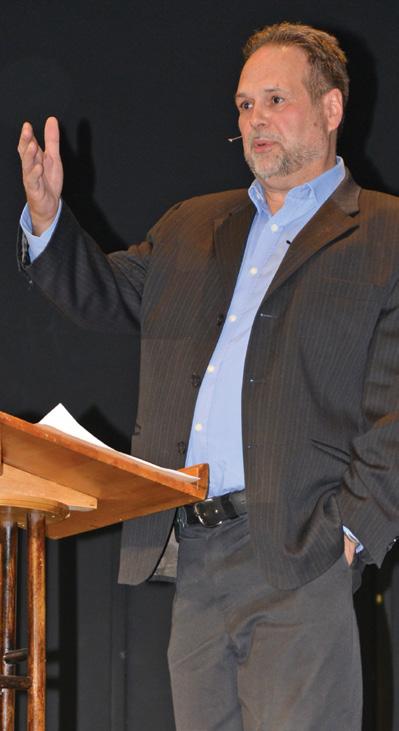
19 The Journey of Christian Vocation
The shape of vocation
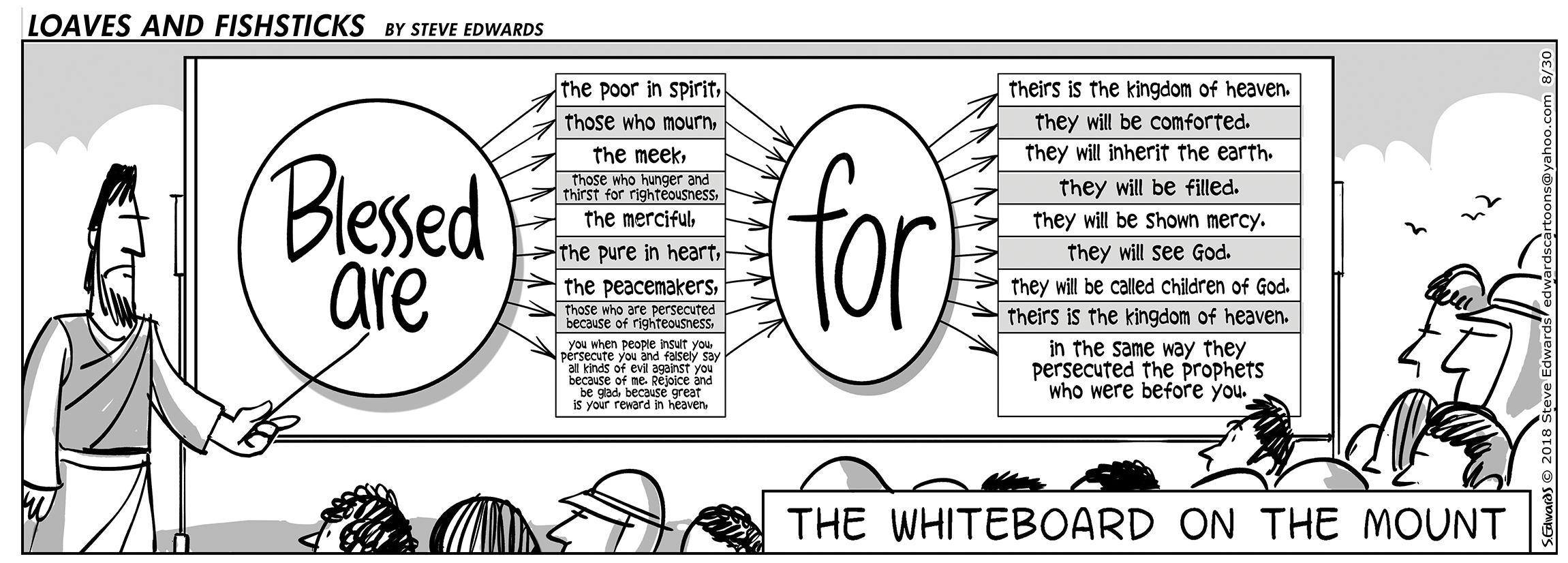
– Calvin Tiessen
34 His Light to My Path
A coin collection and ‘divine love’
– Karla Hein
35 Further In and Higher Up
A handy (and bad) way to win an argument
– Layton Friesen
36 Kids’ Corner
A time to celebrate
– Loreena Thiessen
Volume 61 No. 3 May/June 2023
MANAGING EDITOR
ERICA FEHR
REBECCA ROMAN
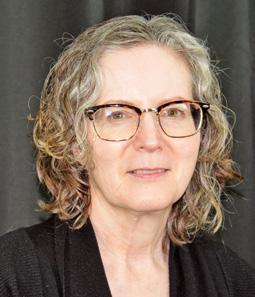
PUBLICATION AND PURPOSE
The Messenger is the publication of the Evangelical Mennonite Conference, 440 Main Street, Steinbach, MB R5G 1Z5. Its purpose is to inform concerning events and activities in the denomination, instruct in godliness and victorious living, inspire to earnestly contend for the faith.
Phone: 204-326-6401
messenger@emconference.ca
www.emcmessenger.ca
www.issuu.com/emcmessenger
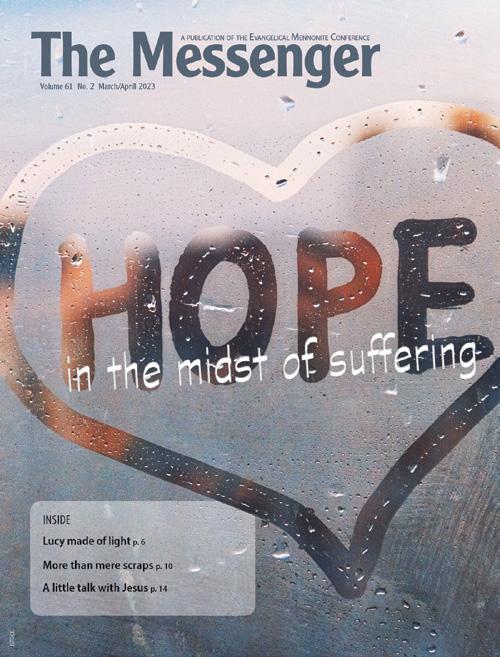
ISSN: 0701-3299
Publications Mail Agreement Number: 40017362
Second-class postage paid at Steinbach, MB
COPYRIGHT
The articles printed in The Messenger are owned by The Messenger or by the author and may not be reprinted without permission. Unless noted, Scripture quotations taken from The Holy Bible, New International Version® NIV®, Copyright © 1973, 1978, 1984, 2011 by Biblica, Inc.TM Used by permission. All rights reserved worldwide.
SUBMISSIONS
Views and opinions of writers are their own and do not necessarily represent the position of the Conference or the editors. Advertising and inserts should not be considered to carry editorial endorsement.
Letters, articles, photos and poems are welcome. Submissions should be sent to messenger@emconference.ca
CHANGE OF ADDRESS AND SUBSCRIPTIONS
Print subscriptions are free of charge to all members and adherents of EMC churches in Canada. For all others, print subscription rates are as follows: $20/year ($26 U.S.), Manitoba residents add 7% PST.
To sign up for the email newsletter or submit an address change, email messenger@emconference.ca
ADVERTISING
The Messenger does not sell advertising, but provides free space (classified and display) to enhance our Conference, its churches, boards and ministries; inter-Mennonite agencies and educational institutions; and the wider church. Ads and inquiries can be sent to messenger@emconference.ca.
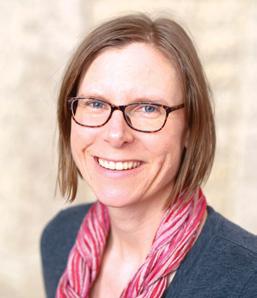
We give thanks to God for the continued strong support of EMC ministries, and we acknowledge the contributions of EMC churches and individuals who give so generously.
- The Board of Trustees
*Income includes donations and transfers from other funds (e.g., estate funds).
Piano lessons [Jan/Feb 2023 issue]
This note is late in coming but I would really like to respond with a thank you. Your [Karla Hein’s] article in the Jan/Feb issue entitled “Piano lessons,” was fabulous. I so resonate with you. Your choice of words to describe your feelings and struggles are so well said.
I just really, really appreciated the article. I ripped it out to keep handy and reread. You offer very helpful wisdom.
Thank you so much for taking the time and effort to write out your thoughts so others, like myself, could benefit from it. In fact, I have been drawn to your articles since you started submitting, but this one hit a clear chord. Thank you and God bless you for it.
– Name withheld
Lucy made of light [Mar/Apr 2023 issue]
This last Messenger [March/April 2023 issue] I did what I don’t always do. I ended up reading the whole thing front to back, and I thoroughly appreciated what you put together. Perhaps because I know people struggling with mental illness, I really appreciated the slant given in “Lucy made of light.” And there was more— the other articles were great as well.
It saddens me every time I sense anyone in leadership putting more emphasis and honour on the number of degrees earned than on godliness or faithful whole-Bible teaching. Jesus didn’t do that.
Every time I sense your faithfulness I applaud you; I thank God for you and pray He keeps encouraging
you to keep strong even midst a society that is growing constantly more liberal. God bless.
– Betty Barkman Steinbach, Man.
As a couple who have followed the development of the EMC foreign missions program with great interest, we were particularly attracted to the missionary service Fred and Doris Friesen began in Nicaragua in the late 1960s. Other missionaries became involved, and the church grew.
We learned that Nicaragua is considered one of the poorest nations in Latin America, its prosperity hindered by natural disasters, such as hurricanes, earthquakes, floods and famines, as well as political instability, culminating in a civil war in 1978. A high rate of unemployment made life more difficult for families from lower-income communities .
Toward the end of 1978 an agreement was made whereby the Nicaraguan “Fraternity” would take charge of church leadership and growth, while the missionaries would focus on developing pastors and church leaders. The change produced a good outcome. When the last missionaries left in 1991 there were eight churches, 400 members and eleven outreach points. Only ten years later the fraternity had grown to 16 churches, 850 members with ten outreach points.
Our interest in Nicaragua led Elvina and me to join a work-team in 2004 for two weeks where we worked together with Nicaraguans, and

visited churches on weekends. Bilingual staff members kindly helped us communicate with our new national friends. We were heartened by their active faith in God and resilient spirit, in spite of their poverty.
So we have always been eager for updates from the church in Nicaragua, our “fellow citizens and members of God’s household” (See Ephesians 2:19-22). You can imagine our delight to learn that a delegation went to Nicaragua earlier this year, giving us hope that closer ties would be established, providing us with timely reports.
The EMC national office is seeking an office accountant (two days per week) to work as an active part of the staff team. Applicants should have a passion for Christ and the mission of the church. This role provides bookkeeping and accounting services to EMC boards and national staff.
Qualifications include experience in an accounting role as well as strong computer, organizational and interpersonal skills, together with attention to detail. Education or experience in bookkeeping and/or accounting is preferred. Bible college certificate or degree would be an asset. This position offers equitable pay and benefits with the opportunity for professional development.
To apply send your resume to applications@ emconference.ca. Applications will be accepted until May 15, 2023, or until a suitable candidate is found.
Can the gospel still unite the church at a time when ideological and theological factions are intensifying? I have no doubt it can, but it doesn’t have to.
Let me explain what I mean by examining three texts found in the Torah: the Shema Israel (Deuteronomy 6:4–5), the Ten Commandments (Exodus 20:1–17; Deuteronomy 5:6–21), and the creation account (Genesis 1–3).
“Hear, O Israel: The Lord our God, the Lord is one. Love the Lord your God with all your heart and with all your soul and with all your strength” (Deuteronomy 6:4–5).
The Shema is a key component of Moses’ farewell speech in which he offers final words of exhortation and encouragement as the people prepare to enter the Promised Land. It is a rallying cry intended to nurture the kind of unity that will be essential for the survival of the nation as it enters a new stage of its history.
Despite the apparent simplicity of the Shema, it would be a mistake to believe that the foundation for Israelite unity was self-evident. The Shema assumed the adoption of the revolutionary idea that there was only one God, and that this God was Yahweh (Deuteronomy 5:7).
This new concept would prove to be confusing and deeply incomprehensible to people who lived in a world populated by multiple deities each responsible for various aspects of life. Ethical monotheism was a daunting and counterintuitive idea around which to unite.
But the God of Israel was no idol, the product of human imagination. No one could slap a label on Yahweh. To impose meaning on Yahweh would be idolatry. To welcome Yahweh as he defined himself was at the heart of true worship.
Two texts were particularly significant in terms of defining the heart of the Shema: the Ten Commandments (Deuteronomy 5) and the creation account (Genesis 1–3). The importance of these texts also resided in that they represented the kind of theological input that would be essential for Israel to survive in Canaan.
Liberating the Hebrews from Egypt was a relatively easy task. Maintaining the freedom they had been granted would prove to be infinitely more difficult. The Ten Commandments were designed to give the Israelites the tools they needed to maintain this freedom. The extent to which the people would remain free would depend on their willingness to obey these injunctions.
The creation account (Genesis 1–3)* was foundational in providing the materials needed to construct a life-affirming and life-giving worldview. The most basic elements of this worldview pertained to who God was, human identity, and the nature of the physical universe.
The concepts found in the creation account were also critical in terms of providing the conceptual tools needed to resist the ideology they would encounter in Canaan.
In this respect, one of the most important concepts the Israelites needed to resist Baalism was the belief that God had created the universe. This most basic theological belief was not only to counteract Canaanite polytheism but to build a bulwark against nature worship.
In addition, the Shema called on the Israelites to give their entire allegiance to God only. Loyalty to God and unreserved commitment to God’s revelation were inseparable.
One might ask what “unreserved commitment” might mean. While total and unconditional commitment by all the people might be highly desirable, in this fallen world, it’s not going to happen. The critical level of engagement needed to succeed would depend on the context the Israelites found themselves in.
When Moses first liberated the people from Egypt, they were to enter the Promised Land
One of the most important concepts the Israelites needed to resist Baalism was the belief that God had created the universe. This was not only to counteract Canaanite polytheism but to build a bulwark against nature worship.
soon thereafter. But because the Israelites had not reached the minimal commitment required to do so, they were barred from entering the land. It was only under Joshua, forty years later, that this benchmark was reached.
The historical and prophetic books later indicate that if Israel’s survival was not contingent on a unanimous commitment on the part of the people, when it came to the ruling class (kings, priests, prophets), expectations were much higher. As the leaders failed regularly to meet this threshold, the nation’s cohesiveness crumbled.
The abandonment of Yahweh and the Law would lead to the adoption of false beliefs that would result in systemic and comprehensive ethical breakdowns. The longer this situation prevailed, the more destructive it became, and the more costly it was to correct (see Isaiah 6:11–13).
To survive, the people of Israel had to commit themselves to God and to God’s law. The more
hostile the environment, the greater and more pervasive Israel’s commitment would need to be.
The extent to which the local church will thrive will, in great part, be contingent on the leadership’s unwavering commitment to Christ, Scripture, and Christian orthodoxy (to borrow an expression from well-known writer and pastor Tim Keller). The greater the commitment, the better the odds that the church will flourish even when facing a hostile environment.
Where the rubber hits the proverbial road is that there is a precise doctrinal content to which the church needs to commit itself. Here is the hard reality that many Christians have difficulties accepting: the more “progressive” a church becomes or, conversely, the less committed to orthodox Christianity it is, the faster it will decline (“How to Shrink Your Church in One East Step,” by Alexander Griswold, published in The Federalist, August 21, 2014).
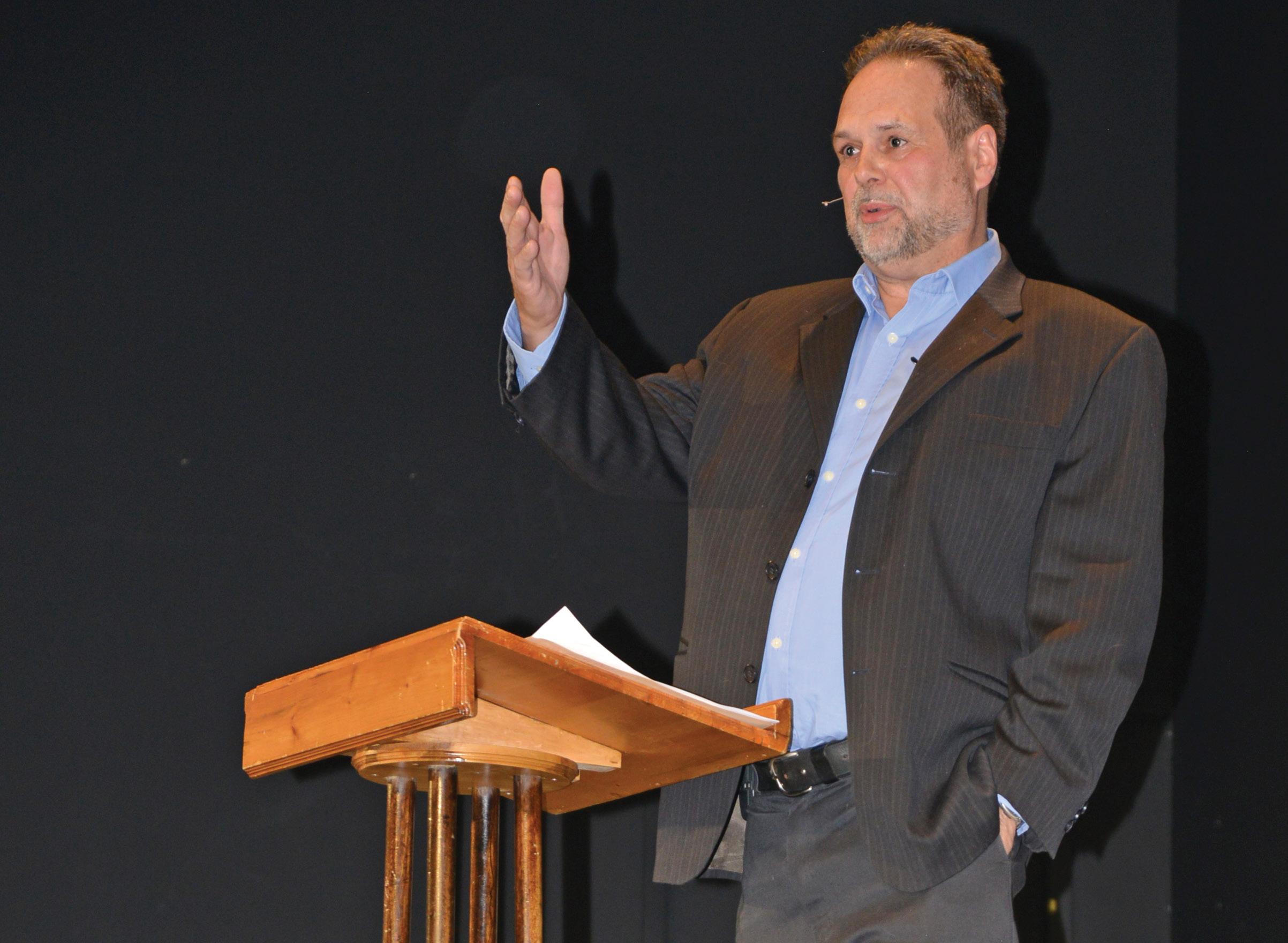
If this is true, it may in fact mean that for churches to survive and grow, they will need to subordinate their desire for unity to rigorous theological integrity.
In keeping with the analogy of the Shema, what could we propose as a central doctrinal statement?
We observed that the Shema could not be isolated from such texts as the Ten Commandments and the creation account. In ancient Israel, unity had to be based on a certain understanding of who God is as articulated in these texts. How the Israelites would live out these theological elements would of course depend on the specific challenges they faced.
My hunch is that we are facing a similar situation. While no one can argue with what constitutes the non-negotiable centre of the Christian faith, namely, that Jesus Christ was born of a virgin, was condemned under Pontius Pilate, died for humanity’s sins, and rose again from the dead, such a statement may not be completely adequate in terms of examining and understanding the broader implications of the gospel with respect to the most influential issues every generation faces.
To address these issues, the preacher must eventually go beyond exposition of the text and reach into the prophetic. While expository preaching always represents the best starting point, and while that may be the only viable option in a highly polarized church environment, we instinctively know that sooner or later, it may be necessary to move beyond exposition to the contextualization of Scripture, i.e., the prophetic.
Prophetic preaching that is deeply aligned with Scripture will be relevant and life-changing. Preaching that merely echoes the dominant worldview will become irrelevant faster than it takes for a dog to pounce on a sausage. For those concerned about church unity, I would also add that the latter will, in time, prove to be highly corrosive and deeply divisive.
Even though there are issues that may not be, strictly speaking, in the bull’s eye of the gospel,
they are so intrinsically linked to its implications that they cannot simply be ignored even as we seek to articulate a solid foundation for Christian unity.
I believe, for instance, that at the very core of the issues, the gospel must address the rapid erosion of the big idea—that is, the notion of the intrinsic dignity of the individual made in the image of God. If I am right, this would mean that in the same way the Ten Commandments and the creation account helped define the Shema, these same texts could vitally inform our own understanding and proclamation of what we understand as the heart of the gospel.
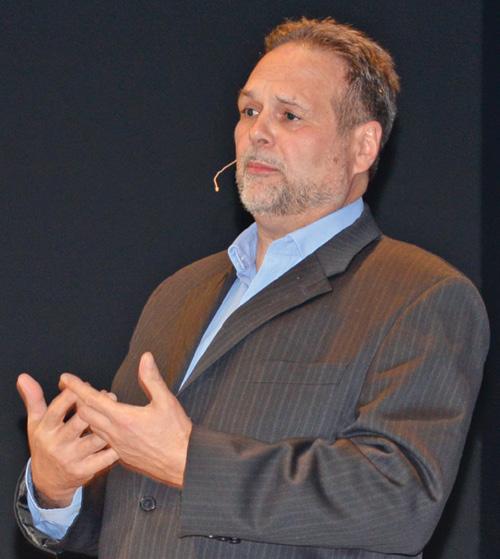
I don’t mean to be excessively controversial, but here are some of the important issues I contend the church will need to address in the foreseeable future. Some of these issues may surprise some readers, but I insert them here because they are proving to be organically related to the loss of the notion of being made in the image of God.
It has become painfully obvious to me that the time has come for churches to confidently proclaim the intrinsic value and dignity of every human being and denounce every movement, ideology, and public policy that challenges this most fundamental truth. This must encompass the abject immorality of abortion and government policies intended to make assisted suicide more broadly accessible.
There are two impulses that emerge when a society is facing a crisis, real or apparent. The first impulse views human beings and the power of
It has become painfully obvious to me that the time has come for churches to confidently proclaim the intrinsic value and dignity of every human being and denounce every movement, ideology, and public policy that challenges this most fundamental truth.
the three-pound brain as key to the solution. The second regards human beings as the cause of the problem and their elimination as the solution.
In this respect, it is increasingly evident that the old environmentalist movement has shifted into what many call radical environmentalism, which is fundamentally an anti-human and, if push comes to shove, an anti-science movement. If there is climate science, it is becoming increasingly evident that we are now dealing with a climate change ideology that is more akin to religion than empirical science. The church has the responsibility to challenge the latter.
The options before us are becoming increasingly polarized. We can consciously or inadvertently identify with an elite class that views human beings as parasites and liabilities, or we can side with the poor and the working class and oppose policies that view global poverty and population control as the solutions to a perceived climate emergency.
At a time when powerful forces are colluding to erase the notion of the intrinsic value and dignity of men and women, free will, freedom, liberty, and humanity’s astounding capacity to find life-affirming solutions to the problems it faces, we need pastors and churches who will push back against these forces of chaos and proclaim these truths.
Christian leaders should do everything in their power to critique, resist, and oppose critical theory in all its forms. The church must challenge any ideology that assesses individuals based on group identity rather than on their character, a principle that echoes the doctrine of the image of God.
At a time when so many are fixated on race, we would do well to remember Martin Luther King Jr once said: “I have a dream that my four little children will one day live in a nation where they will not be judged by the color of their skin but by the content of their character. I have a dream today.”
Can the gospel unite the church today? Absolutely. It is, in fact, the only thing that can unite us, and that is because Jesus Christ is at the
heart of the gospel. Since Jesus is at the centre of the very core of Reality, he must, by default and necessity, be the one and only point of unity for all of us.
But there are conditions. Christian unity orbits around two things: An attitude of loyalty towards Jesus Christ and a deep commitment to a set of core beliefs.
The precise expression of our commitment to Jesus Christ and to Christian orthodoxy will be, in great part, determined by the degree of stress and instability prevailing in the broader environment. The greater the threat to the church, the more focused, rigorous, and robust our commitment to God and to his revelation will need to be. The burden of pointing to how the church will express its commitment to God and his revelation lies with the leaders of the church.
Because of the times we live in and the rapid and radical erosion of the notion of the image of God in our culture, church leaders and theologians need to have an expanded view of the gospel that will translate into a sharp critique of the culture and a dynamic alternative to the cultural hegemony. To a culture that is embracing death, the love of Christ compels us to offer a vision of life.
“Jesus answered, ‘Everyone who drinks this water will be thirsty again, but whoever drinks the water I give them will never thirst. Indeed, the water I give them will become in them a spring of water welling up to eternal life’ ” (John 4:13–14).
*Editor’s Note: The EMC Statement of Faith lists Genesis 1–2 as a scripture reference for Article 3, “The Creation” and lists Genesis 3 under Article 5, “The Fall of the Human Race.” In this case, Dr. Gilbert uses the reference of Genesis 1–3 as “the creation account” both “for the sake of simplicity” and to correlate with other origin stories that serve to “explain the human condition (birth of the gods, humans, the universe, evil, pain, etc.)” He adds, “The account of the fall would also be an important piece in terms of shedding light on the Shema Israel, as it … explains why loving God is not a given and must be at the very centre of all of life.”
Dr. Pierre Gilbert is associate professor of Bible and theology at Canadian Mennonite University and the author of Demons, Lies & Shadows and God Never Meant for Us to Die
 By Dr. Joshua Coutts
By Dr. Joshua Coutts
What makes for Christian unity?
It is my contention here that it is allegiance to lesser gods— including ourselves—that is at the heart of our divisions; therefore, the remedy is being de-centered by and oriented toward Jesus. This is the message of John’s Gospel. There are a thousand issues over which to divide or around which to rally, but there is only one that produces Christian unity.
We often move on to more “practical” attempts at unity only because “Jesus” becomes a caricature, standing in for our deeper allegiances. We have not gazed long enough at him. So, I fear we continue to proliferate division by panicking about the thousand things, and in the process, neglect the one thing that is needful.
First, we need to think about division from John’s perspective. At one level, Christians divide over doctrine, practice, polity and preferences. Yet, what appear to be divisions over content can often mask deeper sources of division in our intellectual commitments, political convictions, family allegiances, social class, education, or personality. When I attach my sense of self to any such things (good though they are), then I invariably feel attacked personally when they are threatened.
Consider the religious leaders in John’s Gospel: When the blind man raises some valid points in defence of Jesus, they shoot back, “We are disciples of Moses … you were steeped in sin at birth; how dare you lecture us!” (9:28, 34).
This is not a mere doctrinal dispute. Egos are at stake!
Furthermore, the ostensible ‘reason’ for any division is frequently elevated as more centrally defining. We tend to define ourselves, not based on what we are for, or whose we are, but with reference to what we are against. Now, in our hyper-individualistic Western culture which places my self or my experience at the centre of reality, division is even more reflexive. The common root of all such division is allegiance to lesser gods – especially my self. Even well-meaning people like Nicodemus hang back and hedge their bets because “they loved human praise more than praise from God” (12:42).
Paradoxically, the unity to which Jesus calls us requires one great Division to end all divisions. In John’s Gospel, Jesus creates division between “the world” and those who along with him are “not of the world” (17:16). This division creates the possibility of Christian unity because it is “the world” that creates division. In John, “the world” is the arrogance by which we construct alternative realities independent of the God who created all things. We make lesser gods or ourselves the source of our life and identity.
Now, being “of the world” is extraordinarily subtle. In John’s Gospel, its primary representatives are Israel’s pastor-theologians. For instance, they identify Jesus as a threat because his actions may result in a loss of their own power and influence: “the Romans will come and take away both our temple and our nation” (11:48). Here, we catch a glimpse of the deeper allegiance which is fully disclosed when they declare: “We have no king but Caesar!” (19:15). What a shocking admission by those called to lead people to God.
So today, how easy it is to co-opt the ‘currency’ of religion (even of Jesus) to legitimate my tribe, garner my own applause, or pad my own pocket. Likewise, whole churches can become hostage to “the world” by giving their allegiance to the lesser gods of national identity, the cult of celebrity, or the god Mammon that drives budgetary decisions. A church or denomination may become so allied with the world that it is merely a husk. The seed has long gone.
By contrast, Jesus’ followers “hate their life in this world” (12:25), meaning they are untethered from various lesser gods. It is only when we fall into the ground like a grain of wheat and die that we find ourselves both where Jesus is and consequently amidst a community of germinating seeds. Unless this happens, that grain of wheat “remains only a single seed” (12:24). In other words, it is only on the other side of death to self that the fruit of Christian unity is possible. Christian unity can only flourish where this kind of pruning is normative.
Christian unity does not mean merely a group of unified people who happen to be Christians. People forge unions by rallying around nationalism, or under charismatic leaders, or in opposition to common enemies or ideologies. Although Christians have historically found common cause in such ways, there is nothing particularly Christian about it.
In John 17, Jesus declares that Christian unity derives from our union with a particular God: “that they may be one as we are one” (v. 22; emphasis added). He also states it this way: “may they also be in us … I in them and you in me” (vv. 21, 23). This indicates that the unity envisioned here is first a vertical one, and only consequently horizontal. I wish to highlight three intertwined threads of our union with this particular God that ground and generate Christian unity.
When Jesus prays, “that they may be one as we are one,” he means that Christian unity is tied to the conviction that God is seen and known in Jesus. The name of this one God, which we bear as his representatives, is the character and action of the God known in Jesus.
Thomas articulates this conviction when he sees the scars of the risen Jesus, and declares,
Christian unity does not mean merely a group of unified people who happen to be Christians. ... In John 17, Jesus declares that Christian unity derives from our union with a particular God.
“my Lord and my God” (20:28). Consequently, it is central to Christianity to declare of the one who was crucified, “that is God.” The Jesus of the Gospels defines what is meant by “God.” To tamper with such confessional truth is to condemn ourselves to the echo chamber of our own whims. And it is a terrifying prospect to achieve “unity,” only to find yourself at the top of the tower of Babel.
In chapter 17, he prays that our identity would, like his, be bound up in our relation with God, and that we be not “of this world.” Now, this identity does not efface other aspects of what makes me me. But it relativizes them and works constantly to prune the “world” from them. Consequently, I no longer need to depend on them to bear the weight of my being, or to strive to create and sustain my own self-importance. It is only when I am freed from the world that I, paradoxically, can be for the world.
Perhaps you resent “Phil” because he was dismissive of you and is now for you a constant reminder that you are not lovely or worthwhile. If, however, you “abide” in the love of Jesus, and imagine the universe with Jesus at the centre and not Phil’s opinion of you, then the pain he caused begins to lose its hold; the desire to avoid him or to find another church free of him diminishes; and beauty and reconciliation can be imagined.
This leads to the third thread of our union with God: self-giving, crossshaped (“cruciform”) love. Our union with God grows out of the rapturous, fountainous love by which God created all things, and by which he propels himself toward a hostile humanity. Jesus rehearses this in his prayer: “then the world will know that you sent me and have loved [my followers] even as you have loved me” (17:23).
Jesus prayed that we would be in the Father and Son and conversely that the Father, in the Son, would be in us (17:21–23). Our identity is our relational identity in God. This is the kind of identity Jesus had, whose authority, teaching, mission, and life all derived from the Father. Because of this, Jesus did not have a weakness for selling out to those who applauded him (see 2:23–25; 5:41; 6:15). Rather, he was free to love others truly— because he knew “that he had come from God and was returning to God, he got up … and began to wash his disciples’ feet” (13:3–5).

This is also the source of the sole primary command in the Gospel: “love one another as I have loved you” (13:34). Jesus puts this another way when he declares his followers will be where he is (12:24–26). And where is he? He is the seed fallen into the ground, pouring out his life for the life of the world.
So, even here, Jesus orients us not first to each other, but to where and who he is. Indeed “unity” is not itself the goal; it is the fruit of this particular Vine. Thus, Christian unity results when the cross becomes our own way of being with each other because we no longer use each other as raw material for our own kingdoms.
Cruciformity injects lubricant into the fractious dysfunction of our relationships, constantly drained by the wearing effects of
Our union with God grows out of the rapturous, fountainous love by which God created all things, and by which he propels himself toward a hostile humanity.
selfishness and pride and fear. In Jesus, we are free from each other to be truly for each other. This is how we can “love one another” as he loved us. And this is why those who say they love God and yet fail to love their brothers are murderers (1 John 3:15) and liars (1 John 4:20)— the same charges Jesus levelled against his worldly, devilish opponents in John 8.
Now, this is deeply impractical. It means that we are most Christian when we are washing the feet of our enemies (like Judas) in the open, and least so when we are plotting for pieces of silver behind closed doors. A church united with Jesus will stand in solidarity with those who sin and betray and divide (while of course not embracing sin, betrayal, and division). Nevertheless, it is likely that the conditions that result are precisely what we need to become truly Christian.
When Christian confession is intertwined with a renewed identity in God that facilitates a cross-shaped posture with others, Christian unity becomes possible. Where there is disunity between believers or churches, the counsel of John’s Gospel is to preach Jesus. Preach Jesus in all his exclusive divisiveness, his cruciform beauty, his all-encompassing commands, his inexhaustible, scandalous compassion.
The recent fallout within churches over COVID-19 restrictions may illustrate the point: It is difficult to confess and worship one who “did not consider equality with God something to be grasped, but … emptied himself” (Philippians 2:5–6 MEV) while at the same time maintain that personal political freedom is of the utmost importance. Conversely, believers who were paralyzed by fear of the biological effects of the virus to the point of demonizing more “careless” neighbours had forgotten that their Lord conquered death and calls us not to cling to our “lives in this world.” Both extremes of this divisive issue are addressed by a summons to confess and follow the real Jesus we encounter in John.
Of course genuine disagreement on secondary matters may remain; and there are occasions
when the gospel of Jesus himself is at stake and division is necessary. John himself had seen a group leave the church because they had abandoned the Jesus of the Gospels (1 John 2:19). Nevertheless, the friction that occurs because we are driven by identities in and allegiances to “the world” has no place among the people of Jesus. Most divisions arise for such reasons and are therefore tragic. When we need to be “right” or regarded well, we are far less free to say, “I was wrong,” or indeed to speak difficult truth to each other.
But those freed from the world are humble, willing to listen, while at the same time resistant to the deception and allure of the world. Church leaders play an important role here in fostering healing and unity between individuals insofar as they point people relentlessly to Jesus, and as they themselves model a cruciform posture in their own interpersonal relationships in the church, rather than viewing their parishioners as the raw materials out of which to construct pedestals for their own greatness. And churches should be places in which there is not less but more capacity and space for disagreement within the confines of the gospel of Jesus—precisely because we have embraced the difficult path of suffering, and are practicing the humble listening and truth-telling that results from being freed from the world.
This fractured world is desperate for some Power that can overcome the devastating effects of prideful independence, alienation, and hostility. The Christian confession is that there is only One who exhibits this kind of power. It is essential to our confessing him that we join him in the place where he is: the grain fallen into the ground yet embedded in the life of God. Only there will we participate in his life-giving witness to the world: “I in them and you in me—so that they may be brought to complete unity. Then the world will know that you sent me and have loved them even as you have loved me” (17:23).
Dr. Joshua Coutts is Associate Professor of New Testament at Providence Theological Seminary, and has taught in theological institutions across Canada.
A church united with Jesus will stand in solidarity with those who sin and betray and divide (while of course not embracing sin, betrayal, and division).
It would be a gross understatement to say we live in an age of division. One only needs to look at world events, read the national or international news, or observe the tone in their own community and networks to see that division and polarization dominate. Small upstart news apps are being created in an effort to provide balanced news by declaring the “leaning” of news reports, all because it is hard to find news that isn’t polemic—strongly attacking (or defending) an opinion in its presentations and conclusions.
Communication expert Deborah Tannen has said that we live in an “age of argument.” It’s a world where people refuse to listen to one another; instead, demonizing each other’s perspectives and habitually oversimplifying and distorting competing views.
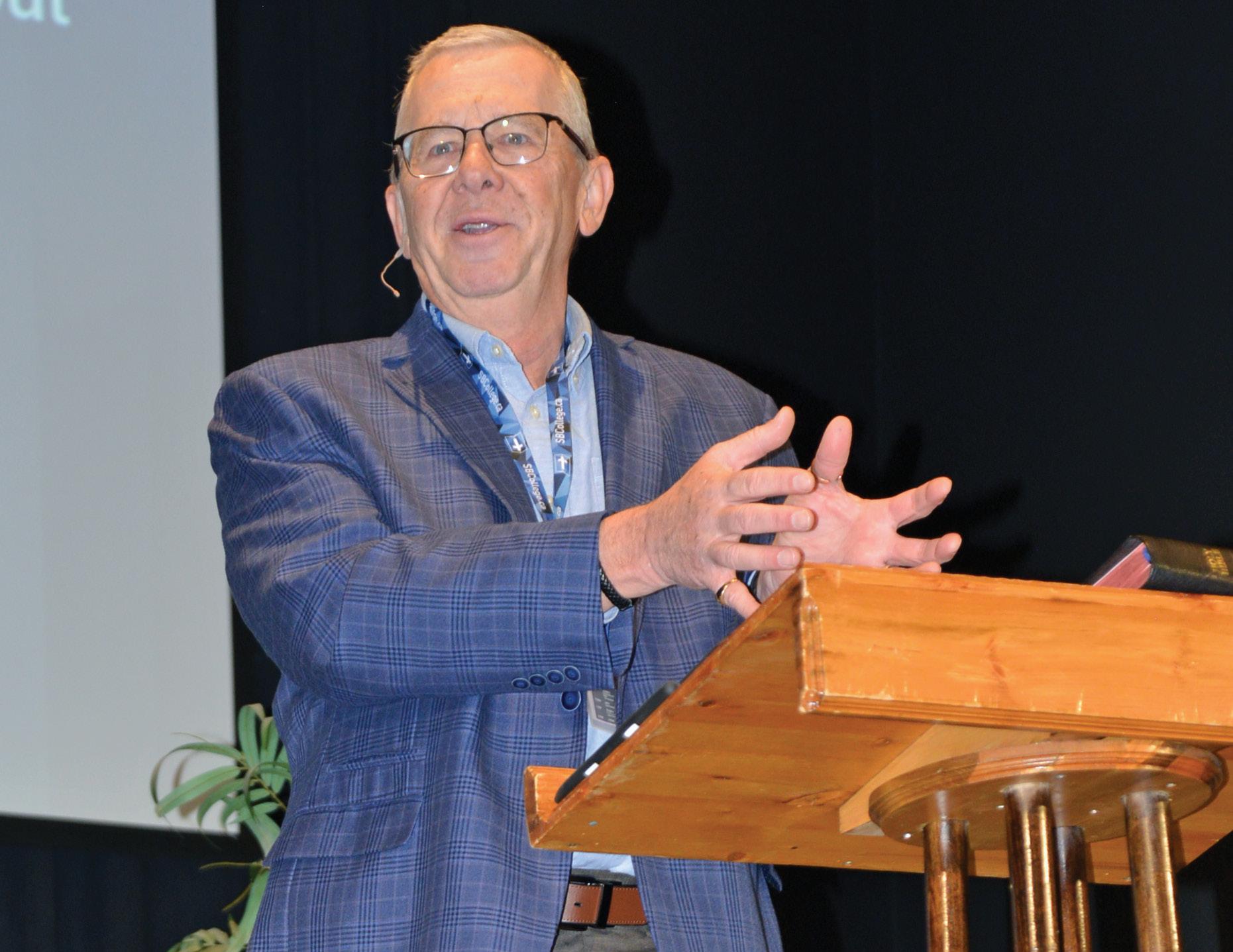 By Terry Kaufman
By Terry Kaufman
Much of this is fueled by an extreme individualism that is driven—even ruled—by the inner self, rendering anything objective (or even “natural”) as less relevant, malleable, and too uncertain to trust.
It’s in this world that we, as Christians, are called to live. Interestingly, Jesus was extremely specific in his prayer to the Father in John 17 that God should not remove us from a place like this. This is the world we are in, and this is the world in which we are called to make disciples.
While we could spend our time lamenting or running from the spirit of the day, this culture also affords us opportunities to build the kingdom. I fully recognize there is an appropriate time and place for us to distance ourselves
in spirit from culture to prevent it from ruling in our hearts or churches. Still, I wonder if, in our concern for that safety, we miss the opportunity and responsibility that lie underneath Jesus’ request of the Father to leave us here.
I think we are given the assignment to leverage the spirit of the age for the cause of the gospel. In Acts 17, that is exactly what the Apostle Paul did as he talked to the philosophers on Mars Hill, understanding where they came from and the conclusions they had drawn, and using that to turn their hearts to the truth.
For at the root of all human experience lie the same core needs. No matter how the current age defines a good life, such a life is ultimately rooted in the shared human need to live as we were originally created (whether or not one sees or acknowledges that).
Further, our common struggle with sin that broke our world has created a rift between God and us, and between us and God’s intention for us (including our relationships with others). This is at the core of both the efforts and the angst of our culture’s worldview and its efforts for a “good life.”
There is little question that the church is swimming in this culture of disunity. Division is pervasive—from the surface and the way people talk, to the underlying principles and philosophies which have been progressing and shaping values for several hundred years. And the divides are complete—there is very little left in the middle ground.
Additionally, differences are now moralized, spiritualized, and weaponized to the point where even talking about unity is divisive.
As a result, people are isolated, confused and angry—even in families and in the church. But, at the foundation of our faith is something that can heal and give hope. While the foundation of a worldview that individualizes us has little hope, it also provides fertile ground for a robust message of hope. So again, I say that this cultural disunity is something that the church can leverage, not just something we should lament.
We have both a responsibility and an opportunity to leverage this cultural disunity. Yes, there
is risk, but there is also opportunity. And that opportunity requires us first to understand and express how diversity in unity is a strength in the church, for that is core to our message of hope.
The church has a chance to show the world that differences do not need to mean division, destruction, self-sabotage, isolation or hopelessness. In fact, robust biblical unity thrives on diversity and embraces many differences.
At the risk of oversimplification, I would suggest that a biblically robust unity is not seen in uniformity or unanimity, but rather in blessing and leveraging appropriate diversity, while being anchored in the gospel of Jesus, for the purpose of
building his kingdom and experiencing the fullness of his joy.
That is no light and easy calling, but it is clearly possible as Christians follow the lead and equipping of our Saviour. But what must we do to swim against the flow of culture in churches in a unity-building manner? I would like to make a few suggestions for you to consider in moving toward this kind of unity. I will simply mention these and leave the more detailed consideration for you. I acknowledge that this short list is not exhaustive, but it is a start for our consideration.
First, I would suggest that we need to rethink our perspective on maturity. For most of my church leadership experience, I have considered maturity in God’s church to be evidenced by tenure, stability, sound theology, and independence, or strength.
While those are, for the most part, honourable pursuits, in Ephesians 4, Paul aligns maturity with biblical unity (Ephesians 4:2–6, 13–16). In fact, it is an immature church that fights over secondary issues and preferences.
Christian maturity isn’t merely about knowing Christian doctrine or being up on the latest
The church has a chance to show the world that differences do not need to mean division, destruction, self-sabotage, isolation or hopelessness. In fact, robust biblical unity thrives on diversity and embraces many differences.
movement in the Christian subculture. Maturity is about how we live; it’s about how we love; it’s about how we treat people—including the people whom we may be at odds with. I will not take time to unpack those verses further, but I encourage you to spend some time in that chapter considering the implications of how Paul connects maturity and unity in the church.
On an individual level, as leaders, maturity is often perceived to be exhibited in strength and authority. I must say this clearly: authority is not maturity! Dropping the “authority” card more often reflects immaturity and bad leadership than maturity and godly leadership, especially in the church.
Please put unity back into your vision of maturity. Unity needs to given its proper place of priority in the work of God.
We also need to work hard to reject inappropriate independence. While there may be a healthy interdependence for us as churches, we are part of the singular Body of Christ. No one part is independent of all others. In a physical body, if any part rejects its shared existence and partnership with the rest of the body, death is inevitable. Independence is not part of our calling as we serve God’s church.
As we move away from independence and reassert unity, we will also need to embrace healthy and biblical diversity. As Richard Twiss has rightly said, “ You can’t have unity without diversity.”
Diversity is part of the unique and beautiful nature of biblical unity and of God’s work in creation. Romans 14 gives us a good picture of how to navigate differences, doing so with a
Works Cited:
Muehlhoff, Tim and Richard Langer. Winsome Conviction. Downer’s Grove IL: Intervarsity Press 2020.
self-aware humility marked by good emotional intelligence, deference, and self-sacrifice, while still being allowed to hold on to our personal convictions.
Embracing healthy and biblical diversity is a great way of recognizing the intrinsic value of every person without requiring debilitating and demeaning uniformity. Only the Christian faith and the gospel can navigate such a balance.
We must rediscover the realm of faithful and appropriate disagreement, held and communicated in a gracious God-honouring way. We must stop demonizing diversity and difference and even disagreement and learn again their value and power in the life of the church. Not every disagreement or division in the church is
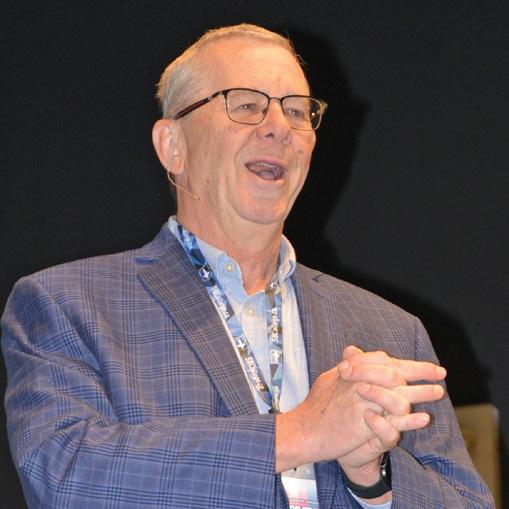
necessarily a break in unity. Still, all disagreements must be handled with biblical wisdom and grace.
As leaders, we must model this kind of appropriate unity—even as we stand firm in defence of the essentials. Richard Langer and Tim Muehlhof, in Winsome Conviction, suggest, “The mission of the church is not defined by its organizational unity. Rather its unity arises from its mission” (p 179).
If we, as the church, can put unity back into its place, with its biblical definition of thriving in the midst of diversity, it will model for the world a number of things.
First and foremost, it shows the priority of the gospel as we unite and anchor in that. Our ability to unite in the core essentials of Jesus and the gospel is telling to a world that lacks any substantial foundation. It exhibits the power of the truth of the gospel.
Unity in diversity also strengthens the body of Christ through that diversity. Richard Lints, in his excellent book Uncommon Unity, says,
We must rediscover the realm of faithful and appropriate disagreement, held and communicated in a gracious God-honouring way.
“getting outside our cultural cocoons of partisanship is likely to give us deeper and richer applications” (p. 232).
Further, a robust biblical unity will expand the reach of the church as it models humility, grace and love.
Unity is not shaped by uniformity, unanimity, or universality. Real unity is shaped by a proper view of God and us—a picture that embraces appropriate diversity. In a world where “forced uniformity of approval” is the ultimate standard (a standard that is isolating and demeaning), a
unity that embraces diversity as a reflection of God’s power and plan for us is rare and refreshing, and it is needed in our world.
In addition, it is part of the maturity in Christ we are called to, and it stands as a key part of the testimony and validation of our testimony and the impact of the gospel in our lives. Let the world see our unity and thus see God at work in us!
Terry Kaufman serves as Leadership Catalyst for the Evangelical Free Church of Canada. He also serves as part-time faculty at Steinbach Bible College overseeing Ministry and Marketplace Leadership as well as teaching pastoral courses.
Q: Should the prophetic voice today be directed to the church as God’s people now or to the pagan world we live in and amongst?
Pierre Gilbert (PG): Today, the prophetic function of the church, while it does address the church, we also have a responsibility to speak to our culture, to speak to our neighbours. Preaching the gospel is proclaiming Jesus Christ but it is also proclaiming these complementary truths that are intrinsic to what the gospel implies. For example, Bonhoeffer didn’t only speak to the church at the time, he also spoke to the Nazi regime.
Joshua Coutts (JC): We see in Ephesians 3 there’s a proclamation being made to the cosmic powers and to the wider world that the church being the church is a profound witness, partly because we are allowing the agenda for what we bear witness to be set by Christ our Lord and not the wider culture.
Q: How do we go about determining the essentials versus the non-essentials? The gospel is to unite us, but how do we define the gospel?
JC: What is the gospel is a great question. It depends on who you ask in the New Testament. Jesus proclaims the kingdom of God on earth, in Acts it is tied to the resurrection, and Paul speaks about being made right with God; it is a multi-faceted thing.
Terry Kaufman (TK): We don’t want to create a list because that list requires us to talk through what we mean by each thing. Some helpful guidelines:
1. It’s clearly biblical and biblically clear;
2. The church has historically considered it to be essential; 3. It’s an essential that every culture understands to be an essential; 4. It points back to Jesus and the gospel.
JC: Jesus said, my sheep know my voice; I call them by name, and they come, they hear. How do you know it’s the voice of Jesus? I think those who are his recognize the signs of Jesus, the evidence of his fruit. The checks Terry laid out are helpful to counter my own blind spots.
PG: I emphasize the role of leadership. The church is like a hospital. We are in the business of inviting people who are
broken; we can’t expect these people to be perfectly orthodox on everything. But at the core of the church there needs to be a clear concept of what the gospel is, what the fundamentals of Christian orthodoxy are. If we don’t have clarity on these issues, the church becomes defensive and can’t welcome outsiders. Clarity eliminates fear and enables us to be pastoral.
Q: If is true that the good news of Jesus leads us to unity how might we recover the goodness of this message in a revitalization of evangelism in our nation?
JC: We no longer are confident that it is good news. Our culture is constantly telling us you have nothing good to offer us, and we’ve begun to internalize that. Some misguidedly proclaim the good news in a way that embarrasses us, so we just shut up about it. The heart of evangelism comes out of a deep confidence this is really good news for the world. What God does and what God wants to do in each life and each community and each culture is to transform its ugliness and brokenness and death and make life come out of it.
That’s good news and we’ve forgotten it’s good news.
PG: An entire two or three generations have become entirely convinced we’re just intelligent animals with no vertical dimension to us. That is extremely difficult to overcome. The secularism of our time has been extremely effective not only in terms of immunizing most people to the claims of the gospel, the claims of Jesus Christ, but also in eroding the confidence of the church and theologians and pastors in terms of that great value that the gospel represents. There is a yearning in the heart of every person that goes beyond this indoctrination from secularism and materialism. We as the church, through the power of the Spirit, have to rediscover how to uncover this yearning that they have for God so that when they do hear the message they hear it as good news.
Q: How do we deal with an increasingly political and politically polarized church?

TK: We have to be Philippians 4 people that fill our minds with things that are excellent and good and praiseworthy. We have to again focus on the mission, focus on the vision of what we’re called for, the Great Commission, and we’ve
got to talk more about that and stop talking about the other things all the time.
JC: Through the New Testament how much air time does Paul give to politics? Two verses in Romans about the governing authorities and that’s about it. One of the most prophetic things Paul does in terms of Christianity in relation to the state is to almost ignore it entirely. In a democracy, political participation has become in some circles too tightly wedded to Christian allegiance to Jesus in a way that has decentred and dethroned Jesus. So preach Christ, proclaim Christ, live Christ, that is what has always defined Christians, and he is our only hope. Jesus Christ is the hope of the world and is only insofar as we are attached to him can we play a role in being the hope too.
PG: Right now the state is inserting itself into areas where it should not be and we as Christians, churches, pastors and theologians are not used to that; we don’t know exactly how to respond. When it becomes illegal to counsel someone who feels they need a transition, or when someone with depression can get access to assisted suicide, these are spiritual and theological issues. We need to decide together what are
going to be the essentials, the hills upon which we’re willing to die, and what are the ones where we can allow and encourage diversity.
Q: What have you seen in your work or theologically that gives you hope?
PG: We have truth in Jesus (John 14:6) and we have the Holy Spirit.
JC: I am humbled and encouraged by the little glimpses of that future glory that I see in real people who are endeavoring to allow Christ to be formed in them. I’ve seen instances of repentance and reconciliation. The gift of communion is a mystery to behold. These moments are sort of mundane, but I think that’s exactly the sorts of places where Jesus is most likely to be found; that’s what gives me hope.
TK: I have seen a burden in God’s people to be making a difference for the kingdom of God. The fact that God is still working in the hearts of his people gives me great hope—and it should because God’s always been working in the hearts of his people. The church has always been his; he’s never given up on it and he’s not going to now. History gives me hope.

A series on 2 Thessalonians 1:11–12.
When I reflect on vocation, artistic creation often comes to my mind.
Several years ago, in a mountain village of Central Asia, I remember watching a coppersmith craft a ceremonial serving dish. He held the broad metal disc in his hand and turned it around, feeling its weight and texture. He looked at it from various angles, observing how it caught the light.

He imagined what it could look like, and then laid out in his mind the way he would bring this imagination to fruition. He began with broad strokes to create the overall curve of the dish. Then he set in with small, careful strikes, to refine the shape further. He was not in a hurry. But he was intentional. After a period of focused work, he would stretch the dish out at arm’s length and look at it, assessing what he had done, and planning for next steps.
Christian vocation is described by the apostle Paul in 2 Thessalonians 1:11 as the combination and result of “every work of faith” which we pursue as we follow the desire for good that God has placed in our hearts.
There is a shape to our vocation, and it is unique to each of us. “For we are God’s workmanship, created in Christ Jesus for good works, which he prepared beforehand, that we should walk in them” (Ephesians 2:10).
So, what is our role in this process of shaping? Two core practices can help us embrace the artistically created character of our vocation in Christ. The first is the practice of testimony. Testimony is the telling of our story. It is the
practice of sharing with others the path which God has placed us on, and how he has taken our desires for good and led us in faith to the work he has laid out for us.
How often do you tell your story to others? How often do we ask one another, “What did you see God doing this week?” Sharing these things with one another is an important practice for raising our awareness and appreciation for the shape of our lives which God is intentionally creating.
The second practice is discernment. Like the coppersmith’s dish we are formed over the course of our lives by the steady flow of decisions we make and actions we take. We live in a world today where so much is possible. The choices we have in our lives seem to grow exponentially in number.
In my work with young people, helping them make vocational decisions, I often give the simple advice, “Do the next thing.” Make the next strike on the metal, take the next step, pursue the opportunity that is in front of you. See God in the opportunities that he offers. Consider trying something challenging. See what God might have for you as you step out.
This is the shape of vocation, the long steady flow of “next steps” which we take in faith, as we engage in the good works God has prepared for us.
By Calvin TiessenLike the coppersmith’s dish we are formed over the course of our lives by the steady flow of decisions we make and actions we take.
From inside our car, we saw four young men sitting quietly under a tree. Their belongings were on the ground. We decided to approach them, to hear their stories.
One young man, Daniel, told us they were from Guatemala, and headed north toward a “four-seasons country.” There is great suffering where they are from, not only the pandemic, but also violence. According to the UN Refugee Agency, last year 90 million people were displaced by force.
Daniel and his friends told us they had been robbed (money, extra clothing and documents) and abandoned in the middle of nowhere. Following some lights, at midnight they reached a little town where a Christian woman (as they called her) provided food, coats, and a place for them to sleep.
Thousands of people cross into Mexico; some get lost on the road (they die or are kidnapped). The majority who arrive at the northern border must return, deflated, defeated, or roam the cities of the north, because only a few could cross.

These four young men did not ask for help, but we offered it, copying the “Christian woman” who followed the compassion of her teacher Jesus. We had a phone they could use to communicate with their family. There were tears as they told them they were going back to their country. Then it was time to mobilize compassionate hearts, first to look for a place for them to sleep and to get them a ride back to Guatemala.
Just a few weeks earlier, I (Angel) was in Guatemala for doctoral classes. So, I shared with them where I visited; we talked about the food. Then I passed them a 10-quetzal bill (less than two Canadian dollars) for them to use in their country. There is a lot of violence in Guatemala. I was housed in zone 3 of the city; hosts warned us of the risks of leaving the building, and local students told us many stories of robberies and attacks they had experienced personally.
The next day we bought bus tickets for the young men, after getting the money together with the help of the Guatemalans’ family and the local church. At the bus station, Daniel and his friends were more relaxed. We talked and prayed together, and I shared the gospel message.
“Do you know that the Bible talks about migrants?” I asked them. “Daniel and his friends were forced to move to Babylon. Even though they were encouraged to embrace the local customs they remained faithful to God.”
“You remember when Naomi fled from hunger, then when she felt unprotected by the loss of her husband and children, she returned to Bethlehem (bread house) when she heard that there was bread again in the city.”
This modern-day Daniel and his friends returned to Guatemala; his mother called to tell us they arrived safe and sound. This is a story with a happy ending, but most of the displaced people do not end this way.
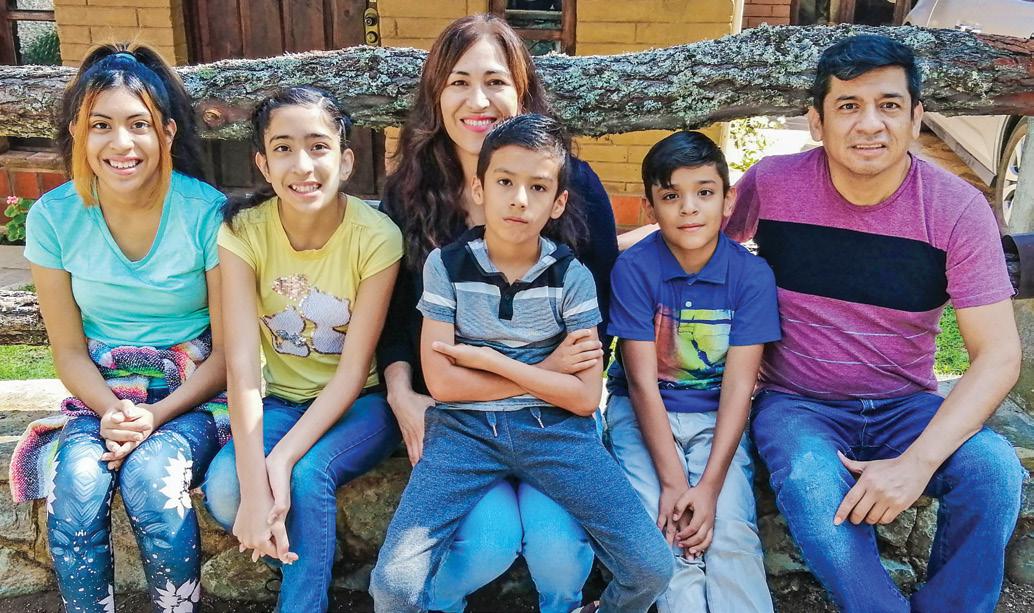 – Angel Infantes
– Angel Infantes
The world is watching as events unfold in the West African country of Burkina Faso. Every week there are more stories of threats and terrorist attacks. Most of the dangerous activity is happening in the Sahel region in the north, near the border with Mali, and in the east near Niger, Togo and Benin. These attacks and threats have caused much suffering and anguish due to loss of life and displacement.
The church is growing and adapting, aware that this is an opportunity to witness for Christ under difficult circumstances. I have had telephone conversations with church leaders in Burkina Faso who have helped me understand the current situation.
The Global Terrorism Index has calculated that Burkina Faso is now the second most impacted country in the world in terms of terrorist activity. In 2022 Burkina Faso had the highest number of terrorist-related deaths compared to other countries. Kidnappings, exploding mines, burned down schools and village massacres make headlines as jihadists unleash violence.

Two successive military coups toppled the governments in 2022, seemingly because not enough progress was being made against terrorism. “Burkina Faso’s political instability and high state of tension culminated in a coup in September 2022, the country’s second in a year. This increased internal conflict has diverted the attention of security forces towards combating Islamist insurgency, and weakened efforts to maintain law and order” (Global Terrorism Index 2023 report, p. 22).
Almost two million people have left their homes in the north and moved to the south. The displacement of these people has created social turmoil affecting the whole country. Schools are overcrowded. People suffer from trauma as they recall the threatening situations they’ve left behind and feel unrooted and disoriented in the new places to which they have fled. Finding enough food to eat is difficult for people who have left their fields and cattle behind in the urgency of escaping danger. Schools, mosques and churches are closed in many northern regions.
The government has warned churches to keep gatherings small. In January 2023 the Mennonite church was concerned they would have to cancel their annual gathering of churches. Fortunately, they were able to conduct their meetings, but not without constant awareness of the danger around them. Now in April the warning has once again been given by authorities to keep group meetings small.
Despite this, churches are growing, ministry continues, and the Word of God is proclaimed. Radio evangelism continues, Bible translation continues, worship services continue, prayer meetings continue.

Most recently the government has asked churches to contribute financially to support the purchase of arms in the fight against terrorism. The Mennonite Church of Burkina Faso, which holds to a position of peace and non-violence, is considering how best to respond to this government request. They are considering the question of whether such contributions would honour the work of Jesus Christ, who is the Prince of Peace. They ask for your prayers.
In conclusion, here is part of a prayer request sent out by Africa Inter-Mennonite Mission (AIMM): “Thank God for his protection of church members and for their faithful witness in this challenging security situation. Thank God too for the church’s diverse ministries of Bible translation, evangelization, micro-enterprise loans, radio ministry, and international mission outreach. Pray for continued protection from terrorist attacks and that the church finds fruitful ways to build peace in communities across the country.”
– Paul ThiessenWe walked down the metal steps of the small jet in Tabatinga, Brazil, and were hit by heat and the smell of the rainforest. There was beauty in nature, but the buildings and streets were well-worn and plain. We slept in a small but clean hotel and headed to the dock early in the morning. It was fascinating to check in to the jetboat for our trip down the Amazon, starting with the police office, then watching luggage get loaded through trapdoors in the aisle on the boat, and finally taking off down the river.
At the beginning of our seven-hour ride, we were offered grilled ham and cheese sandwiches and hot coffee, and later a plate of beef, spaghetti, and rice. The cook in the closet-like kitchen at the back of the boat was basically a magician, as far as I could tell. Upon arrival at our destination, Santo Antonio do Ica, we were met by our smiling hosts and taken to their home on small motorcycles. What a trip!
The 12-day trip was an adventure, with over 50 hours in airplane and boat seats, sleeping in six different beds and two nights in airplanes. The purpose of the trip was an aviation audit/consult for a couple with an airplane for ministry. While in Brazil, we were starkly reminded that God gives each of us gifts to use in his body and kingdom—and he expects us to use them where he leads, whether within our house, our community, or halfway around the world. What a privilege to be part of God’s work!
Our time with Lloyd and Athena was a blessing as we heard their passion for gospel work among the isolated people on the Amazon River. They work with a small team in local churches and the community of this remote town. Lloyd uses a small aircraft to travel to churches and
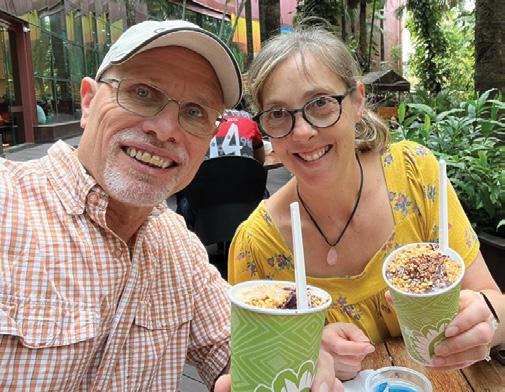

transport local pastors, who trade 24 hours of paddling for 15 minutes in an airplane!
The team also has a clinic where they do prenatal care. It was amazing to spend a morning there, seeing the staff, including a surgeon and Athena, who is a nurse, love the women by providing quality care and sharing the gospel. It is incredible to be able to invest in what is happening there. We talked through both aviation and ministry, offering suggestions in various areas.
Aviation is key to ministry in many places, either supporting church planting or as a creative access option. Garry earned his private pilot license as a teen and graduated from Moody Aviation with a BS in Missionary Aviation Technology. We married during his first term in Venezuela and have spent over 30 years doing aviation and investing in missionaries and local communities. These days we work at Moody Aviation. Our goal there is to increase longevity of mission aviators by investing in spiritual maturity and technical excellence, and we are always looking for those gifted with a love of God and aviation.
– Cynthia BarkmanJoin the challenge!
Help 10,000 kids attend school around the world by donating 10,000 school kits during the month of August.

How many can you do?
For more information, scan this QR code or visit mcccanada.ca/mccschoolkits


Last summer, driving through the roads of the province of Jaen in the south of Spain I was struck by the number of hills full of olive trees everywhere I turned. The first thought that came to mind was, when is time of harvest? The harvest comes during fall, so I was a few months early.
That made me think about John 4:35–37. Jesus encourages his disciples to see that the world is ready to be reached. It states that the right time to bring people into God’s kingdom is now. Paul says to be prepared to preach the gospel “in season and out of season” (2 Timothy 4:1–2). When it comes to reaching the lost world for Jesus, the harvest time is now, at this precise moment. As EMC we are doing just that—in Algeciras, Spain, and other places throughout the world.

My second thought was about the number of olives those trees would produce in a year. Spain usually ranks number one in olive production, with almost 6 million metric tons as a yearly average. All these trees need to produce such a bountiful harvest is a little water, a little pruning, and to watch out for disease.
In John 4:38 Jesus says, “I sent you to reap what you have not worked for. Others have done the hard work, and you have reaped the benefits of their labor.”
I believe God has been doing the most important work through his Holy Spirit to prepare the soil. God is the one gathering his people and calling them to faith. He is doing most of the work; we join with our humble contributions the immense work he is already doing. As the time is now, and the results are his, we only have the responsibility to be diligent and obedient to his call to get involved.
In Algeciras, Spain, we have met many Moroccan immigrants. We see the many needs these people have, but one that stands out is the need to feel loved and accepted. As disciples of Christ, we are the feet and hands of Jesus through which these people can taste the love of God and listen to the message of the gospel.
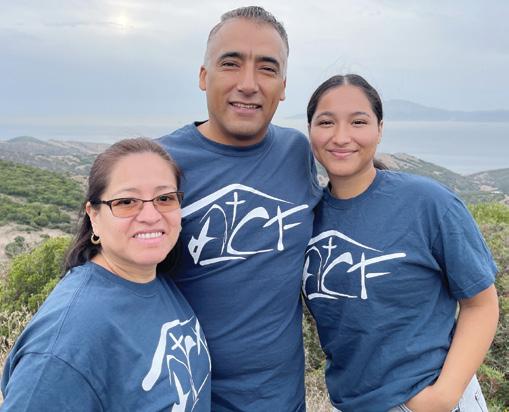
Would you consider getting involved in God’s greater plan for the people of Morocco? Contact the EMC office to find out more.

LANDMARK, Man.—Beauty Out of Ashes (BOA) was established in 2017 through the vision and commitment of Gary and Mavis Unger. The Ungers had spent several years at an orphanage in Haiti when their hearts were touched by the desperate circumstances of young girls forced into domestic slavery in some of the poorest areas of Port au Prince.
Gary and Mavis are part of the Heartland Community Church (HCC); as their vision materialized, they sought a board to oversee this ministry. Harold Barg, Mark Kubanek and Len Barkman from HCC together with three members from other churches, Earl Plett, Candace Bartel and George Goosen, became part of this work.
in the life of the home. It has been precious to see the girls develop a close relationship with Christ. They are very open in sharing their faith wherever they go.

For many decades Haiti has gone from crisis to crisis: through natural disasters and through a dysfunctional political environment. Life in Haiti has been difficult and often dangerous; gangs seem to be in control in many parts of Haiti. There are endless stories of violence, kidnapping, extortion and murders. Despite this, Gary and Mavis and their family had, for the first number of years, felt quite at ease in moving about the country. All that has changed dramatically within the last year. In a recent letter from Gary he comments that,
“A few years ago our girls had a bright future in Haiti, today that looks very bleak. Many families have been forced to flee their homes because of the gangs, and we’ve had a family of 13 move in with us after being forced out of their home … We live in constant anxiety and fear wondering if we will be next as the gangs are moving into our neighbourhood. We often find bullets lying on our yard from stray shots. Gunshots have become common, and everyone comes in as soon as we hear shooting start. Just over a week ago, there was a gun battle between the police and a gang and many gang members were killed that night. The shooting was all around our compound and the girls were terrified. Mavis brought them all into the hallway with their mattresses … Please continue to pray. This is our family, we love them dearly and for us to leave without the girls is not even an option.”
It did not take long for BOA to be established in a rented home south of the capital Port au Prince. Haitian Social Services was very open to assign young girls into the care of Gary and Mavis and to give them legal guardianship for the girls. After several years in a rented home, a beautiful and functional residence was built.
Twelve young girls have become part of BOA. The transformation they have experienced has been amazing. The girls came out of abject poverty, abuse and domestic slavery. Through the love and care of Gary and Mavis they have become happy and well-adjusted members of the family. They are excellent students and willingly participate
The dangers are such that the BOA board is looking at options for the family. Three of the older girls are studying out of country. Much wisdom is needed in considering how best to proceed.
Gary and Mavis are praying for a new day to come to Haiti and place their trust in the God who has cared for them these past years. Psalm 37:35–38, “I have seen the wicked and ruthless people flourishing like a tree in its native soil. But when I looked again, they were gone. Though I searched for them, I could not find them! Look at those who are honest and good for a wonderful future awaits those who love peace.
– Len Barkman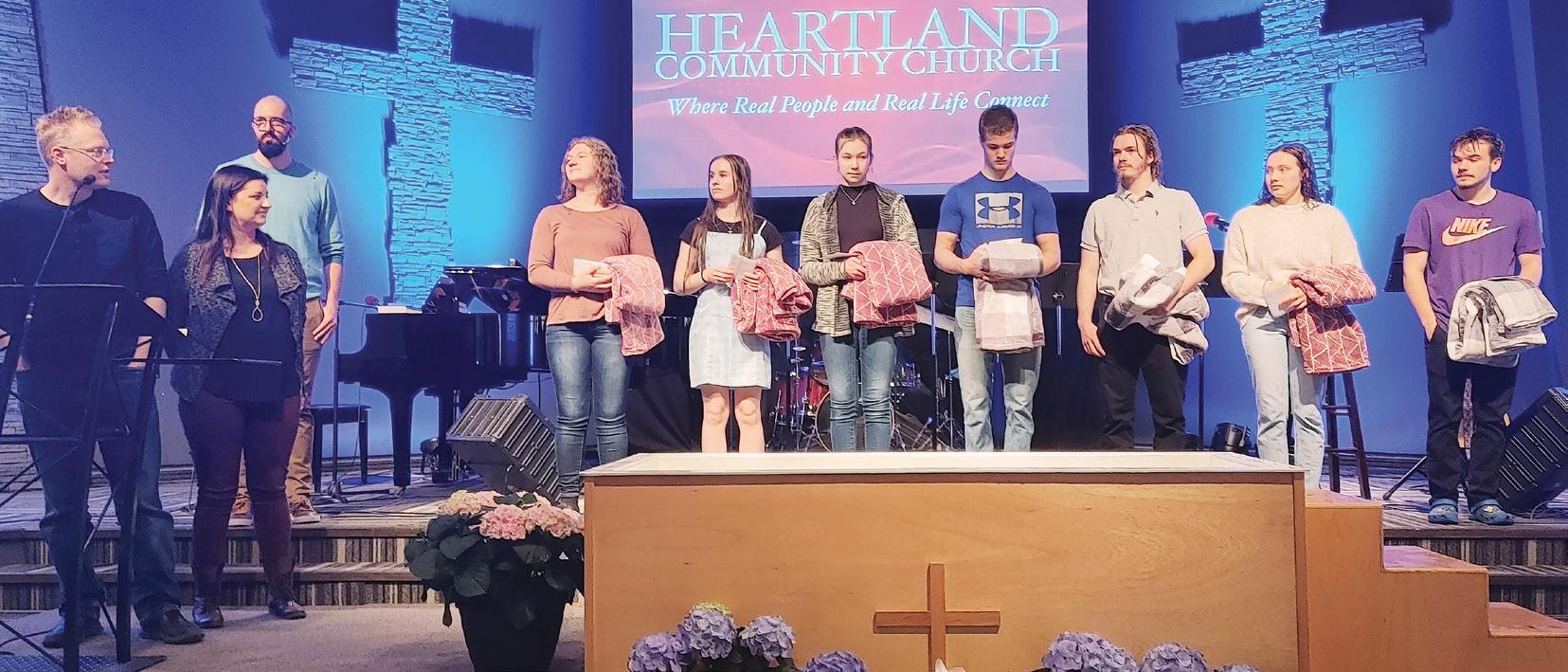
LANDMARK, Man.—Our special Tenebrae service on the eve of Good Friday was planned and performed by a team of believers in Jesus working together to create an atmosphere of worship and remembrance. They took us step by anguished step through the last week of Jesus’ life during Holy Week.
We started the solemn evening by taking communion together, to commemorate the Passover and Jesus’ fulfillment as our Passover Lamb. Weaving through Old and New Testament scriptures, hearing sweet melodic songs, accompanied by flute, acoustic guitar, and piano all prepared our spirits to receive the lyrical mediations of Christ’s anointed calling. The meditational readings and times of silent reflection helped our minds imagine Jesus’ journey toward the cross, and as each candle was extinguished along the way, we felt the weighty burden of our sin and guilt that Jesus bore for our salvation.
Then came Easter Sunday, the most glorious day of remembrance on the Christian calendar, the epitome of God’s accomplishments for our salvation: the resurrection of Jesus!

We celebrated Easter Sunday with a morning of feasting and fellowship. A full house filled with chatter, laughter, and great anticipation. We came to witness seven young people who chose to identify with Christ in his death and resurrection; their symbolic act of following Jesus from cross, to the grave, to new life. Pastor Travis Plett read from Romans 6 connecting Easter and baptism.
We heard each person give their testimony about what God has done and is doing in their lives. Special mentors,
people who were important in their lives, prayed over each candidate. After Travis baptized the believers, in keeping with our own traditions they were given a blanket symbolizing our commitment as a church to surround them with the support of a loving community. Travis also continued the tradition of giving a special personal blessing over each person taking this important step in their walk with Jesus.
Thank you all who participated in making this Easter season a rich experience.
– Brigitte Toews
CALGARY, Alta.—Abbeydale Christian Fellowship, where one can only guess what kind of interesting and wonderful surprises are in store. The Palm Sunday, Good Friday and Easter Sunday worship services were each unique and a blessing in their own way, culminating in a distinctly international experience.
The leaders of the four congregations which meet to worship in ACF’s building (each in their own time block): Deliverance Arenet Church (an Ethiopian group), Amor en Accion (Spanish EMC), New Life Church (a local outreach church) and Abbeydale Christian Fellowship (EMC) collaborated to prepare and lead their collective congregants in the Holy Week worship services. Cultural variances in styles of worship and the differing demographics of worshippers served to unite the gathered believers in worship.
Just like during that first Holy Week, we were also a group of his followers gathered around the tables in honour of the sacrificial Lamb.
Good Friday became a time of extended fellowship, when, following the afternoon service, the culturally diverse potluck offered dishes such as Congolese mikate, Mexican fried empanadas, Ukrainian varenyky, Ethiopian dishes and a variety of other interesting and appealing options. The meal itself was likely not at all a resemblance of the food Jesus ate with his disciples at his last supper. It was, however, just like during that first Holy Week, also a group of his followers gathered around the tables in honour of the sacrificial Lamb.
It was also encouraging to witness small children from a myriad of ethnicities worshipping, eating and playing together. Could this be a picture of how culturally diverse our leadership teams of the future church will look like? Surely it is just a little taste of how, together, people of all nations will worship the risen Lamb together in eternity.
– Ivy PlettThe 29th Annual
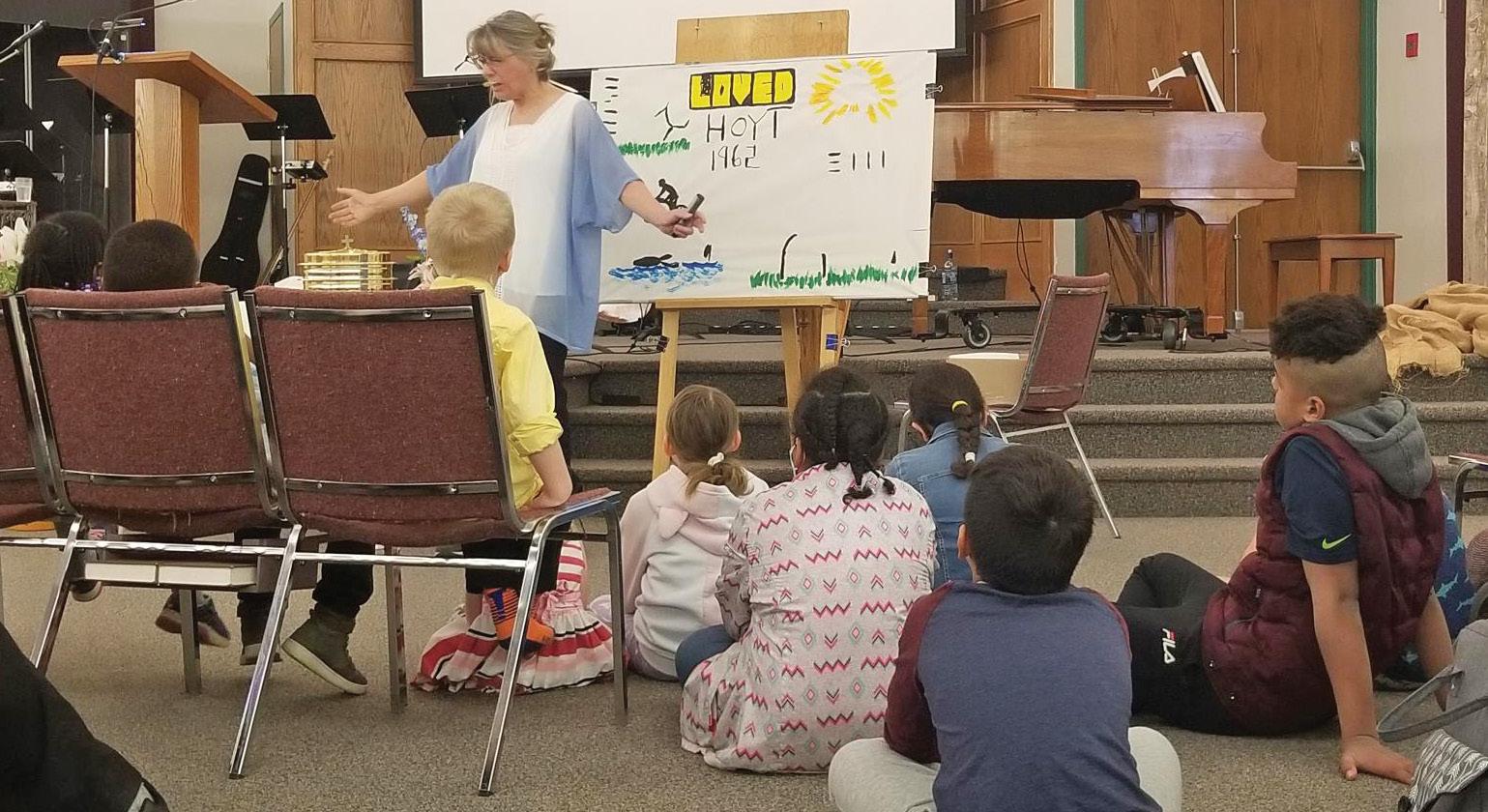
June 15, 2023

Straffordville EMC celebrated its first service in their new building on December 23, 2018, and held a grand opening celebration on June 9, 2019.

• April 4, 2021, baptism of Tim Thiessen (right); Pastor Abe Berg at left.
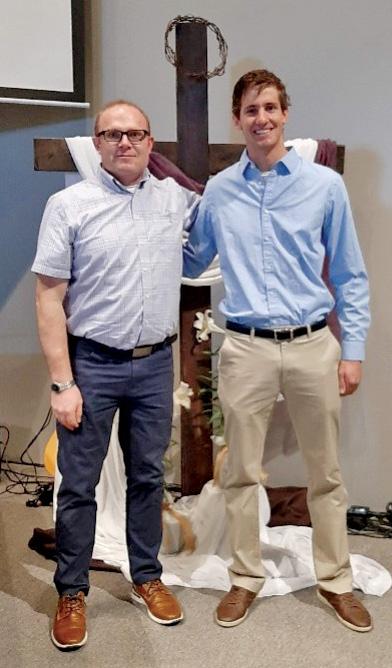
• Baptism on January 29, 2023, with Samuel Blatz, Aaron Froese, Jaron Wall, Pastor Abe (in back), Morgan Siemens, Kendra Krahn and Katelyn Krahn

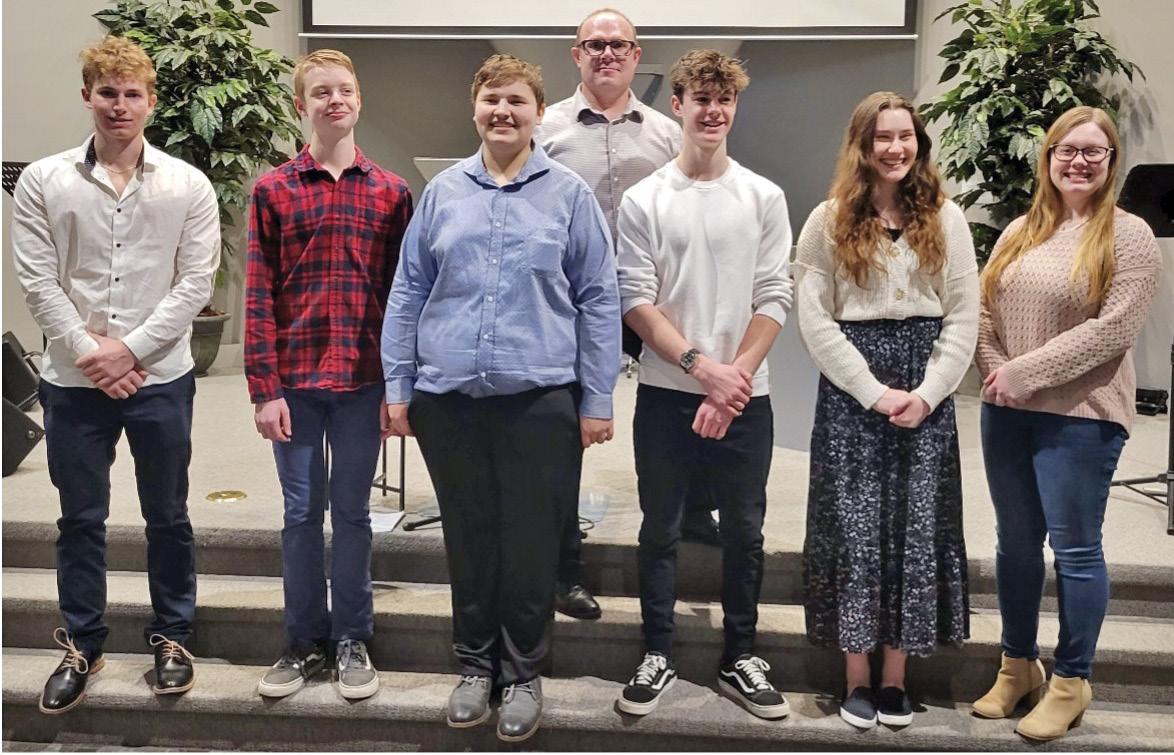
• Members received on January 29, 2023, are Abe Peters, Diana Peters and Sara Peters.
– Photos and captions submitted by Margaret Berg
What good does it do to plant one tree, I asked myself, as I visited with farmers in Mwenezi District, in south central Zimbabwe last September.
Everywhere our Mennonite Central Committee (MCC) Communications team went, farmers were sure to tell us they planted a tree that year, most commonly a mango tree because it provides food as well as shade.
These farmers had come to understand that cutting down trees over the decades may have addressed a need for firewood, but destroying forests contributes to climate change.
And they know that climate change is hurting their land, the crops they eat and their water supply. It even divides families by forcing them to migrate.
At an MCC-supported emergency food distribution, I spoke with Clemence Jawanda, a father of eight. He said that inconsistent rains during the last two planting seasons resulted in very poor harvests. The food he and his wife grew was gone six months before they could harvest again.
On the floor, a few chickens were brooding, on their way to producing other chickens Jawanda and his family can sell or eat. The family adds termites, caterpillars, mushrooms and other naturally growing ingredients to their cooking, but that’s not enough.
If the upcoming planting season isn’t better, Jawanda said he may need to migrate to look for work, like other men in the community have done.
Women who are left behind are quite vulnerable, explained Caroline Pugeni, project coordinator for Score Against Poverty (SCORE), the grassroots organization and MCC partner that organized the food distribution. In the culture, women have little to no decision-making power, yet they need to feed, educate and parent their children alone.
Planting season for 2022-23 was supposed to start in October, so in early January, I sent an email to Pugeni to ask how crops were growing.
“Any delay in rains in the next few days will result in complete crop failure,” she wrote back. In March, she confirmed that 85 percent of crops in three districts of Mwenezi had failed because of too much rainfall variation.
My heart sank. What have we done? We, meaning those of us in the world who have ignored the warnings of our climate scientists for at least the last 20 years, probably longer.
Although my husband and I have made some significant changes in our house and property over the years to
be kinder to the environment, climate change still seemed like a distant problem. I figured my passionate environmental friends could deal with it.
But now, when I think about the Zimbabwe farmers planting one tree in an effort to protect and feed their families, I am ashamed of my nonchalance. As a Christian, I have committed to love God and my neighbors. Yet, my very lifestyle isn’t loving to them.
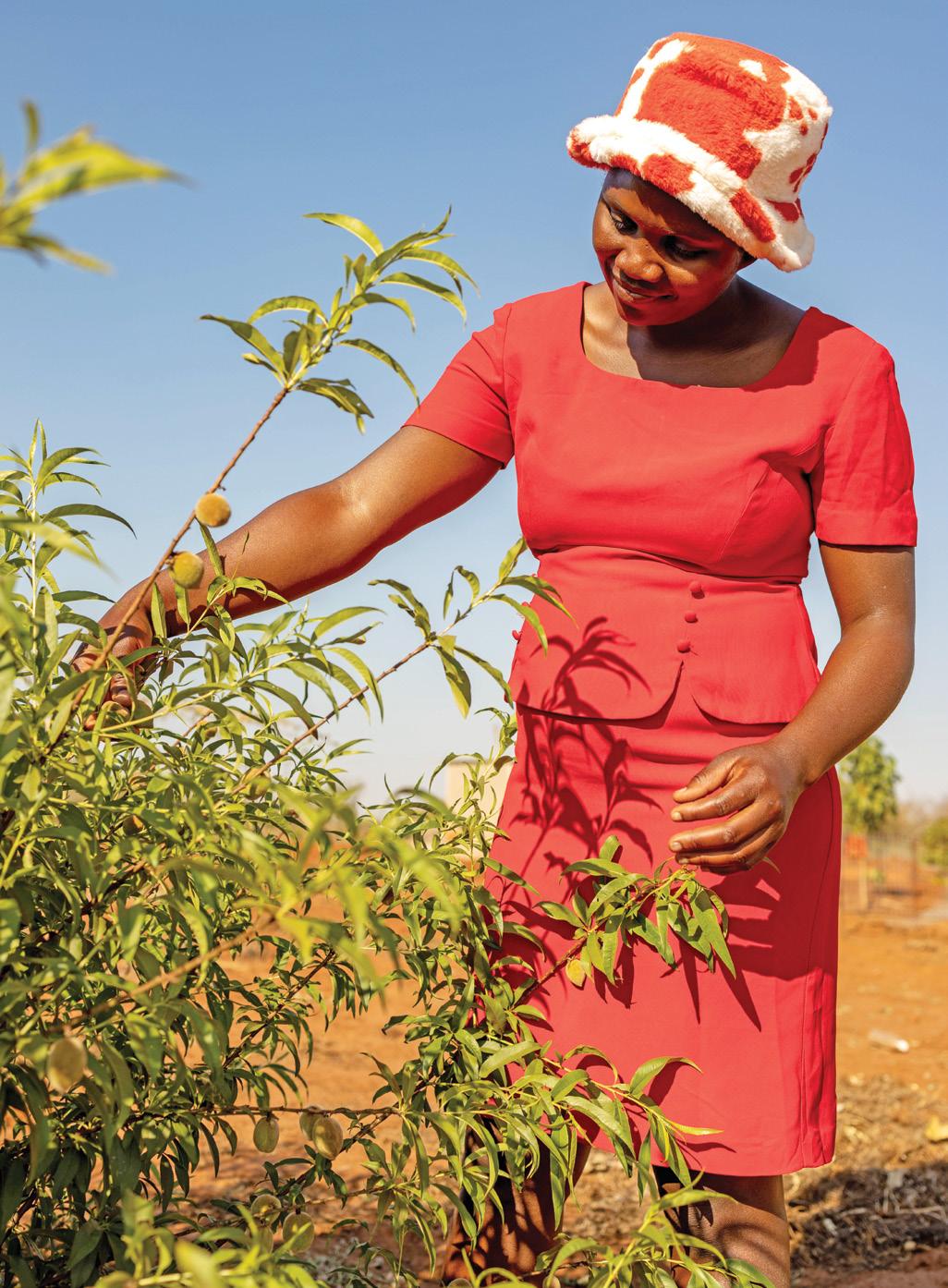
Unlike me, they don’t have the luxury of choosing whether or not to address climate change. They must act now.
Farmers are changing the traditional way they have farmed to conservation agriculture—a farming method that is more productive in areas with little rain. SCORE has been teaching this method and encouraging families to use
less wood by introducing fuel-efficient stoves, solar power and biodigesters.
The lifestyle of these families in rural Zimbabwe did not cause climate change, even if they cut down trees and their country has a coal industry. In the big picture, their contribution to climate change is a drop in the bucket compared to what North Americans and other prosperous countries have done.
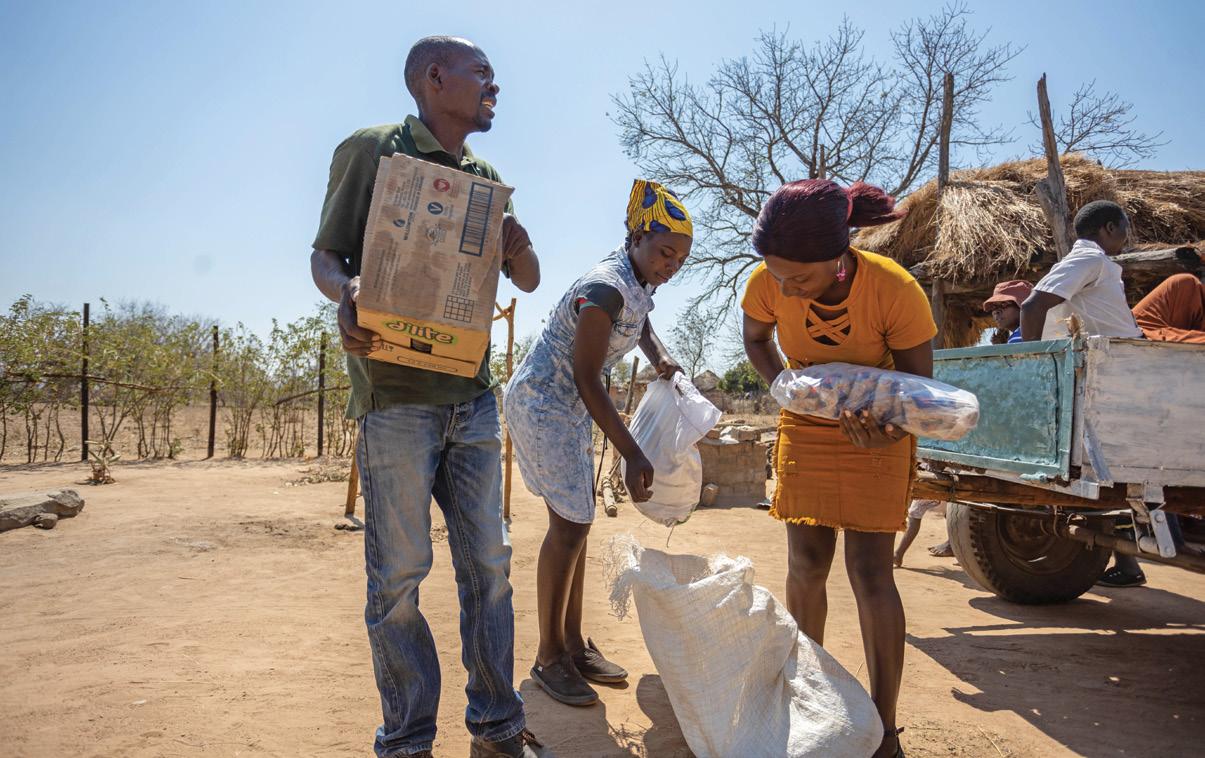
Guvuriro singled out gasses from industries, vehicles and nitrogen fertilizer as some of top culprits of ozone layer destruction. But she didn’t stop with blame.
“So what are we supposed to do as the Women Coalition on Climate Change?” she asked the group. She answered her own question: Don’t cut down trees. Plant trees. Why? Because trees take in the carbon we produce. Trees again.
As I listened and thought about what I had learned during the week, I realized that my skepticism gradually had evolved into admiration.
So when I was asked to say a few words to the WCCC participants, I heard myself telling them that I was so inspired by their efforts to address climate change that the next car I buy would not use gasoline.
They clapped enthusiastically, but my gut churned with the economic disparities and injustice I had just named. I was promising people who walked to the meeting that I would buy a car that cost tens of thousands of dollars, so that I don’t pollute the atmosphere I share with them.
I was embarrassed by unintentionally revealing that I can spend that much in front of people who are trying to figure out how to make food grow out of dry ground. On the other hand, I think the promise I made is appropriate.
I earn more. I cause more harm to the environment than they do. So, I owe more to fix it. Perhaps this car is my tree? Or maybe there will be a better option than an electric car, which I’ve learned recently also has justice and environmental problems related to mining of critical minerals.
I look around and see other people in U.S. who are planting their “tree.” I have friends whose farmhouse was previously heated with fuel oil, but now they are using a more efficient heating and air conditioning system powered by electric, which is completely offset by their solar panels. Their once-rented hayfield now has hundreds of native trees growing on it.
My church has installed chargers for electric cars. We’re encouraged to charge ourselves a gas tax and use it to address climate change.
I asked my cousin, who is an expert on environmental sustainability, what she thought about the one tree initiative in Zimbabwe. She said their efforts are absolutely essential.
Everybody must do something, she said. Some people advocate with the government, some teach, some quietly set an example, some lead businesses that voluntarily reduce their carbon output and others work for environmental organizations. Some plant trees.
It doesn’t help, she says, to get lost in blame and hopelessness. Keep changing. Do one thing. Then another.
For me, it’s my next car ... and a lot of steps in between. What’s your next tree?
– Linda EspenshadeLinda Espenshade is MCC news coordinator in the U.S. MCC launched a climate change advocacy campaign on April 22, “Climate Action for Peace,” to draw attention to the vast impact of climate change on people around the world and to give people ways to work on mitigating it. Find out more at climateactionforpeace.com.
Perhaps this car is my tree? Or maybe there will be a better option than an electric car, which I’ve learned recently also has justice and environmental problems related to mining of critical minerals.Clemence Jawanda, Nyaradzo Jawanda and Nyadzisai Jawanda unload food that came from a monthly food distribution from MCC partner, Score Against Poverty.
OTTAWA—How is Christian faith shared from one generation to the next? What help does the local church provide? In 2019, 17 Canadian ministry organizations and denominations partnered with the EFC Centre for Research on Church and Faith (CRCF) to help answer such questions.
Parenting Faith, the 245-page report released on April 11, 2023, presents the findings of this uniquely Canadian research that identifies what helps and hinders the transmission of faith from this generation of parents to their children.

parents believe it is essential to offer their children religious choice without any pressure, while 32 percent of respondents report that their own upbringing was quite different. They recall their own parents requiring unquestioning obedience to religion and not offering explanations about faith.
“In our various and distinct ministry areas, we all observed that children and young people seem to be leaving the church more than they are staying,” says Eric Provost, executive director of Awana International Canada. “We share a deep concern about that trend, along with the conviction that understanding what is happening within families can help churches and ministry organizations serve and help those families better.”
The research, conducted by the CRCF, involved interviews with Canadian evangelical parents and family ministry experts as well as surveys with 1,217 parents representing 3,041 children across Canada. The report identifies the cultural influences and parental priorities that are currently shaping how beliefs and faith-related behaviours are adopted or rejected by the next generation.
“Parenting Faith identifies both gaps and opportunities for churches, ministry organizations and parents to help us all better guide youth into a life of following Jesus and meaningful belonging and participation in the Church,” says Rick Hiemstra, lead researcher and CRCF director. “As parents ourselves, we were fascinated to hear other parents
share their hearts, and in many cases, their actual techniques for nurturing a love of God within their kids. We are excited to think about how this report will equip leaders and practitioners to understand the context parents are living in now, and how they can most effectively come alongside.”
The report also reveals seismic shifts in how parents of this generation view and carry out their role as shapers of faith in their children’s lives, compared to the previous generation and their own parents. Seventy-three percent of surveyed parents believe it is essential to offer their children religious choice without any pressure, while 32 percent of respondents report that their own upbringing was quite different. They recall their own parents requiring unquestioning obedience to religion and not offering explanations about faith.
The survey reveals that, in contrast to previous generations, these parents do like to discuss faith with their children, and often do so casually while on the move from one extracurricular activity to another or during other transition times during an ordinary day. The research also shows other typical faith-forming activities like reading the Bible, praying or sharing personal testimonies are not being practised by children in a way that would indicate they would continue to practise them as adults.
An astounding 99 percent of parents surveyed say their role in faith formation is to teach and model their faith.
The full list of EFC affiliate organizations that partnered in this project along with the report are available at www. TheEFC.ca/ParentingFaith
Seventy-three percent of surveyed

1937–2022
Leonard Barkman was born in Winnipeg on August 4, 1937, to Abram and Helena Barkman of Blumenort. He passed, peacefully with his family at his side, at Rest Haven Care Home in Steinbach, Man., on October 8, 2022—his 63rd wedding anniversary—leaving his beloved wife Betty and their six children: Walter, Jolyn, Laurie, Lois, Wendy and Dylan, with their spouses and families. Also his five siblings with their spouses and families, Betty’s siblings with their spouses and families, as well as many friends and relatives. He was predeceased by his parents, daughter-in-law Dianna, son-in-law Darrell, sister-in-law Tina, brother-inlaw Alvin, sister-in-law Edna, as well as premature, stillborn twin sons.

Leonard loved many things. That included all things nature: Joubert Creek and bubbling brooks; riverbanks and sloping hillsides; oak trees; squirrels and birds; riding horses; even beavers with their notorious dams; antiques – especially old or red hip-roofed barns; old tractors—especially John Deeres. There was green in his blood.
His greatest loves were not things, but people. He loved
Betty and the kids passionately, but it didn’t end there. His heart was big enough to love every individual in his church and know them all by name; everyone in his community too. He loved most everyone he met. He enjoyed making a gas station attendant smile with his one-liners, or blessing a grader operator with a cold refreshing Pepsi. At times this did complicate things a bit at home, like when he’d leave in the middle of a family function to help someone in need. Yes, even amazing people get tired … and even good kids sometimes yearn for more undivided attention. Right?
The biggest desire of his heart was to serve God faithfully. He planned to bypass retirement and die in his work boots—a wish he didn’t get. As founder of Pansy Chapel, he never wavered in his passion to build the church. Yet the start was rough. Banks
and fuel trucks refused to serve the notoriously “bad” community. Money was scarce. The church was not yet into pastor support, so we eked out our living on a little dairy farm. In due time all this changed. Yet even in the dry years we never suffered. God is so faithful!
Although shy as a child—nobody would have guessed that he’d become a preacher—he loved to preach. It was a gift. With this and things it involved, he served heartily for 50-plus years in Pansy, plus two each in Kansas and Ontario. Several times he did a series of revival meetings in various churches, including Mexico and Southern Ontario, loving nothing more than to see a person come to faith in Jesus Christ. He spoke at youth groups, couples retreats, and officiated at over 200 weddings, carefully counselling each couple. He served at countless funerals too where his passion shone—no one should ever attend one without hearing a loving invite to salvation, holding to Jesus’ words, “I am the way, the truth, and the life. No one comes to the Father except through Me” (John 14:6 NKJV).
Leonard, you have left us a profound legacy. Not perfect, but still so amazing. It broke our hearts to see your decline into the grips of tragic disease. You who were so strong. You who knew us all by name, and so much more.
To keep your legacy alive, we will keep singing your favourite hymns and every so often give each other one of your famous high-fives. Your footprints may be too big for us but we’ll try to be faithful too. And we look forward to seeing you again. Soon. Even so, “Come, Lord Jesus.”
– Betty and family
Please send all position ads (150 words or less), including pastoral search ads, to messenger@emconference.ca. Ads may be edited. Please advise us when it is no longer needed.
Often there are more churches looking for senior, associate, youth, and interim pastors than are identified on this page. For information on additional openings, contact Conference Pastor Andy Woodworth (awoodworth@emconference.ca or phone 204-326-6401).
Senior Pastor: Taber Evangelical Church (Taber, Alta)

Taber Evangelical Church is actively searching for the senior pastor whom God has chosen to lead us into the future. Taber EMC is a unique, growing, familyoriented church. Our regular Sunday attendance is about 250. If you feel the Lord leading you in this direction please email taberemcpsc2@gmail.com or contact Bram Klassen at 403-331-9563.
Pastor: Coaldale Mennonite Church (Coaldale, Alta.)
Rooted in Jesus, Growing in Grace, Connected in Community, Branching into the World is the mission statement of Coaldale Mennonite Church (CMC), in Coaldale, Alberta. We are seeking fulltime pastoral leadership to collaborate with and inspire ministry volunteers, church leadership and staff to bring energy and a sense of renewal to our church body through ministry and outreach opportunities. We are followers of

Jesus; an Anabaptist multi-generational church that is community minded. The candidate(s) will work to equip CMC for ministry and provide direction, insight and counsel through a Godly walk and Bible-based, Christ-centered ministry. Please forward any questions and employment information in confidence to cmchurch@telusplanet.net.
Pastor: Anola Fellowship Chapel (Anola, Man.)
Anola Fellowship Chapel is in the RM of Springfield at 58006 Monominto Road, 5 miles southeast of the community of Anola and 35 minutes east of Winnipeg. Our mission is to love God, love our neighbours, and make disciples. Our vision is to serve our neighbour through loving, encouraging, and caring. We have a full Sunday program and both children and youth programs. We are active in various community events. We are actively seeking a full-time pastor to lead our congregation to replace our retiring pastor. We are looking for a spiritually mature man with a deep personal walk with Jesus, an engaging, enthusiastic individual who demonstrates sound biblical teaching and in depth preaching as well as vision. Contact Landon Elhard at afcpastorsearch@gmail. com for more information and/or full job description. Check out our website at anolachapel.com.
Senior Pastor: New Life Christian Fellowship (Coatsworth, Ont.)


New Life Christian Fellowship is a small country church with approximately 65–85 that gather every Sunday. New Life is compiled mostly of young families with lots of little ones around to keep you on your toes. Many of our families have a Plautdietsch (Low German) background which is often heard during times of fellowship. We are looking for a full time senior pastor who has a passion to preach, and teach from
the Scriptures (background in ministry would be an asset), and has a heart for ministry and people in and outside the church. Our vision for the church is Reach Up, Reach Over & Reach Out. We would require that you agree with the EMC Statement of Faith. For more information, please contact board@nlcfchurch.org.
Associate Pastor: Evangelical Fellowship Church (Steinbach, Man.)

Evangelical Fellowship
Church (EFC) in Steinbach, Man., is seeking to hire a full-time associate pastor. Our vision is to: Worship God, Love Neighbours, Make Disciples, Grow Young. To that end, we are looking for an individual who will place a strong emphasis on discipleship. This individual must also agree with the EMC Statement of Faith. Applications will be accepted until March 31, 2023. For a detailed description of the position and how to apply, please email your inquiry to pastoralsearch@efchurch.ca. Check out our website at www.efchurch.ca
Associate Pastor: Rosenort Fellowship Chapel (Rosenort, Man.)
Rosenort Fellowship Chapel (RFC) is seeking an associate pastor whose primary task will be youth ministry with secondary tasks to be determined. Our vision is to build a junior youth ministry (grades 7–9) while assisting in senior youth programs in the community.
The applicant will be a person who loves Jesus Christ and aspires to help others know Christ. This person will be highly motivated to make an impact among youth with his/her own dedication to Christ and to lead, influence, and prepare our youth for life today. The applicant will have some Bible college and skills in communicating biblical truths. This person will work in cooperation with the leadership team.
RFC is a multigenerational congregation of 100 persons 30 minutes south of Winnipeg. We are theologically Anabaptists who long to Radically follow Jesus, Further the gospel, and Care for the community.
Email applications to Cam Cornelsen at cam.rfcleadership@gmail.com.
currently holds an English and a Low German service each Sunday morning which both connects us to our cultural heritage and gives us a unique outreach opportunity to more traditional, Low German-speaking communities.
Associate Pastor: Straffordville
Evangelical Mission Church (Straffordville, Ont.)
Senior Pastor: Vanderhoof Christian Fellowship (Vanderhoof, B.C.)

Vanderhoof Christian Fellowship is in Vanderhoof, located on the banks of the Nechako River in the heart of British Columbia. Our mission is to love God, love our neighbour, and make disciples. Our vision is to serve our neighbour through loving, encouraging, and caring. We have a full Sunday program and both junior and senior youth programs. We have an active weekly seniors Bible study as well as weekly youth Bible studies. We are active in various community events. We are seeking a full-time senior pastor for our congregation to replace our recently retired pastor couple. Looking for a spiritually mature individual with a deep personal walk with Jesus, an engaging, enthusiastic individual who demonstrates sound biblical teaching and in-depth preaching as well as vision. Counselling skills would be an asset.
Contact Bernie Klassen at bande@ hwy16.com for more information. Check out our website at vcfemc.com.
Pastor of GermanSpeaking Ministry: Picture Butte Mennonite Church (Picture Butte, Alta.)
Picture Butte Mennonite Church (Picture Butte, Alta.) is prayerfully seeking to hire a full-time pastor to oversee our German-speaking ministry. PBMC

We are looking for a man that is experienced in ministry with a strong ability to shepherd in preaching and teaching from the Scriptures in Low German as well as an ability to relate to and care for members of the Mennonite community. This pastor will also meet the biblical requirements for leadership in the church as laid out in 1 Timothy 3:1–7 and Titus 1:5–9.
For more information or to submit a resume, please contact Isaac Thiessen, Chair of Leadership, at 403-308-5093 or by email: isaact@genicadev.com.
Youth Pastor (part-time): St. Vital EMC (Winnipeg, Man.)


St. Vital EMC Church is seeking to hire a part-time youth pastor who will lead and disciple our youth aged 15–18 years old. We are an established and friendly church in south Winnipeg with approximately 120 congregants who aspire to love God and live as Jesus Christ lived.
The successful candidate will demonstrate a passion for Christ through their vibrant and growing relationship with Jesus. Demonstrable leadership and influence among youth will mark this person’s character on a consistent basis as well as the ability to discern truth and obey God’s calling within the broader scope of the church’s ministry. The person taking this role needs to demonstrate the ability to work collaboratively on a small ministry team.
Previous applicable experience working with youth is essential. The position will require approximately 16 hours of time per week. A resume, with cover letter, can be sent to: Oswald at ozzy_wald@ hotmail.com.
Straffordville Evangelical Mission Church is seeking an associate pastor. SEMC is a rural church in a growing community with a congregation of about 160 people. We are a multigenerational congregation and have great existing ministries. We work hard at developing relationships in the community.
We are looking for male applicants who have a clear sense of calling and love for the body of Christ, to serve and equip her for works of service, stemming from a growing relationship with Christ. This person must be able to preach, teach and show pastoral care.
The successful applicant will work alongside the senior pastor and lay ministers in preaching, teaching, care-giving, and providing resources and support to the other volunteer-based ministries in the church, according to his strengths and abilities.
Applicants must agree with the EMC Statement of Faith and display an understanding and general agreement with our Anabaptist theological background. Contact psc@straffordvilleemc.ca.
Lead Pastor: Friends Community Church (Carman, Man.)
Friends Community Church (Mennonite Brethren) Carman Manitoba, is seeking a lead pastor. If you are passionate about living out your faith in a vibrant rural community, please follow the link for more information and access to the pastoral profile. http://friendscommunitychurch. ca/pastoral-search/

My son recently started a coin collection. For those who rely solely on the plastic tap of cyber exchanges, the shocking preamble to this story is that physical money still actually exists in Canada. My husband, Zach, who has collected coins since he was a little boy spent time explaining to Creedence how to grade his coins. They flipped through a coin reference book (yes, physical books still orbit the globe as well). Zach started reading the prices for the more expensive coins that have sold at auction.
“That one is almost enough to buy a house!” I exclaimed, hearing the value of a tiny piece of metal. Our sixyear-old, Desirae, commented that she didn’t have any coins worth that much.

“No,” Zach replied, “You’re poor.” I was surprised by his bluntness (and the lack of angst from the recipient).
“And she doesn’t care,” I commented as she skipped away to more urgent playtime matters.
“Of course not,” Zach replied. “She doesn’t need to have money right now.”
I started thinking about the teeny tiny sparrows and the lilies that neither toil nor spin (Matthew 6:26, 28). As God’s child, I too should be confident that my needs will be provided for—like Desirae trusts her daddy and like the sparrow trusts its Maker.
In January, I started reading through the Old Testament and noticed the number of animals that the Israelites were expected to sacrifice yearly. My Bible’s notes explained that the sacrificial requirements looked forward to God’s

promise of a prosperous land that would supply plentiful resources for the people “able to provide for this lavish and expensive worship.” (ESV Study Notes on Numbers 28:1–29:40). The firstborn without blemish. The first fruits of the harvest. The three times per year trek to the meeting place to observe the holy festivals. “I will not take for the Lord what is yours, or sacrifice a burnt offering that costs me nothing,” David said (1 Chronicles 21:24).
I always thought of the sacrifices as obvious obligation for his chosen people. I had never considered that the cost would sting, or that hands would have to release something in faith that God would provide what was needed afterward.
But think of the Father’s sacrifice! Did he not give up his own Son! Who can find a costlier sacrifice than the spilled blood of the Provider himself stooping low and offering himself? Is he not strong enough to provide us with everything we need for life and righteousness (2 Peter 1:3)? Sounds simple in theory, but the reality is messy.
In Deuteronomy, the Israelites’ wandering is described as going through the “vast and dreadful wilderness” (1:19). I’m sure you have encountered something vast and dreadful that has tested your endurance too!
We can be comforted by not only the wilderness testing and chastisement of the Israelites, but also the gentleness of their Redeemer!
“There you saw how the Lord your God carried you, as a father carries his son” (1:31). Or as Spurgeon said, “Had any other condition been better for you than the one you are in, divine love would have placed you there” (Morning and Evening). After God’s people have been tested for awhile, we will come out pure and radiant from that terrible place for the sake of His glory (1 Peter 1:6–7). This too is a mercy greater than we deserve!
A coin collection and ‘divine love’ ISTOCK
I always thought of the sacrifices as obvious obligation for his chosen people. I had never considered that the cost would sting, or that hands would have to release something in faith that God would provide.

Ioccasionally hear myself make this mistake in an argument: When I describe my own view, I describe an ideal, a vision for how we should think and live. But when I describe my opponent’s view, I describe how that view is lived out in real life. My argument thus becomes a comparison of my highest ideals with my opponent’s worst examples.
So, for example, arguing for Anabaptism I describe it in terms of following Jesus in everyday life, peacemaking, and being a church of committed believers. That’s obviously a sweet ideal, regardless of whether anyone can live it out. But in comparing Anabaptism to, say, Calvinism, I talk about how their theology leads to complacency in mission, despondency in assurance, and an arrogant leadership style. On my side is my ideal, on their side is the sorry way their ideals may be lived out.
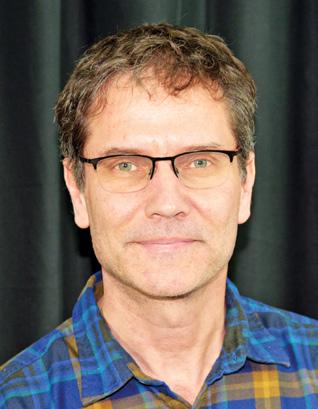
This might be more subtle. I might say, “Instead of trying to unite the church around a list of doctrines we should be united by living like Jesus.” On the one side you have the dismal record of churches making lists of doctrines devoid of authentic spirituality and love. On the other side is the ideal of what amazing unity we would have if we actually lived like Jesus. On the one side are sordid examples, on the other side a glorious ideal. You can see why I win so many arguments.
its not because I am a bad person, its because I was forced into it by the situation. Maybe I was just so exhausted by the whole mess of conflict. If, however, my opponent does something good, its not a sign of good character—she was likely forced into it. She was cornered and had no choice. But if I do something good, of course that’s just the kind of person I am.
This fallacy accounts in good part for why conflicts can become so entrenched and toxic. Nothing either I or my opponent could possibly do, good or bad, can contradict the story I have made up in my mind about how things are.
We all have a powerful instinct to justify ourselves with mental tricks to make ourselves look like the people we believe we are. Read the book Mistakes were made (but not by me): Why we justify foolish beliefs, bad decisions and hurtful acts by Carol Tavris and Elliot Aronson for an eye-opening description of how our brains work overtime to prevent us from admitting our mistakes.
But! We are justified by the grace of Jesus, not by our own behavior. That should change this whole dynamic. My life turns out well, very well, not because I am so right but because I am so graciously loved. As that sinks in, I can risk being humble and honest.
By Layton FriesenThis is related to what conflict mediators call the fundamental attribution error. It explains why people in conflict often arrive at such toxic portraits of the people on the other side and are blind to their own behaviour. It goes like this: If my opponent does something bad, I attribute that to her terrible character; that’s just the sort of person she is. But if I do something bad,
On the one side are sordid examples, on the other side a glorious ideal. You can see why I win so many arguments.By Loreena Thiessen
It’s May and time to celebrate the sun’s warmth and the bright colours of spring. In many countries May 1st is a holiday (May Day). Apple blossoms, lilacs, and wildflowers are brought indoors as decorations. Outdoors, children tie colorful streamers to a maypole and play and dance around it to celebrate the day.
In May we celebrate Mother’s Day. Three women in history worked hard to make this day happen. In the 1850s it was Anna Reeves Jarvis. At this time health care was basic. There were no vaccines or antibiotics. Many babies and children died. In fact, only four of Anna’s 13 children survived to adulthood.
Anna Reeves Jarvis wanted to improve these conditions. She created Mother’s Day Work Clubs where mothers could get information on nutrition and sanitation, including the importance of boiling drinking water. The organizers also provided medicine and supplies to sick families.
The second woman was Julia Ward Howe. She worked to improve hospital conditions, to make them cleaner and more hygienic. She worked to abolish slavery, and advocated for
Need: construction paper, markers, scotch tape, or a stapler, small sticky notes, seed packets, candy, cookies
Do:
• Fold one sheet of construction paper from the bottom left corner over to the right edge. Then take the bottom right corner and fold it over to match the left slanted edge. This will form a shallow cone. Tape or staple the left slanted edge. You will have a pocket to fill.
• Fill the pocket with some of the goodies listed above. Write an act of kindness you will do on the sticky notes. Stick the sticky notes together to form a flip book. Stick the flip book to the inside of the pocket.
• The back of the cone will stick up above the pocket you created. Write Happy Mother’s/Father’s Day on it.
• Give to your father or mother.
women’s rights. Julia was a published poet, a lecturer, and a preacher.
The third woman was Anna Jarvis, daughter of Anna Reeves Jarvis. Anna Jarvis wanted to honour her mother for her hard work. She talked to mayors and government officials to create a special day to honour all mothers. In 1914, the second Sunday in May was officially established in the U.S. as Mother’s Day. In 1915, Canada followed.
In June we celebrate Father’s Day. The first celebration to honour fathers was in 1908 in the U.S. It was a day to remember 362 men who had died in a mine explosion. It was to be a one-day event.
One year later, Sonora Smart Dodd felt inspired to honour her father. Her mother died in 1898 when Sonora was only 16. Sonora had five younger brothers and now her father was left to raise them alone. Sonora decided it was right to honour fathers with a special day just as mothers were being honoured.

The first Father’s Day was celebrated in 1910, but it took until 1972 for Father’s Day to become a national holiday in the U.S. In Canada, it is not officially recognized as a holiday.

To honour your mother and father is one of the most important things you can do. In fact, it is so important that God made it one of the Ten Commandments.
Read Exodus 20:12, and Ephesians 6:1–3.